6TH PROSPECTUS
2025 - 2026






2025 - 2026





Founded in 1995, The British School of Bahrain has grown into its purpose-built campus in Hamala, on the Western edge of the Kingdom of Bahrain. With over 90 nationalities represented in the student body, we are a truly international school focused on delivering an outstanding British curriculum. We are an accredited ‘British School Overseas’, verified by an outstanding inspection, as well as rated outstanding by the Bahrain Education and Training Quality Authority.


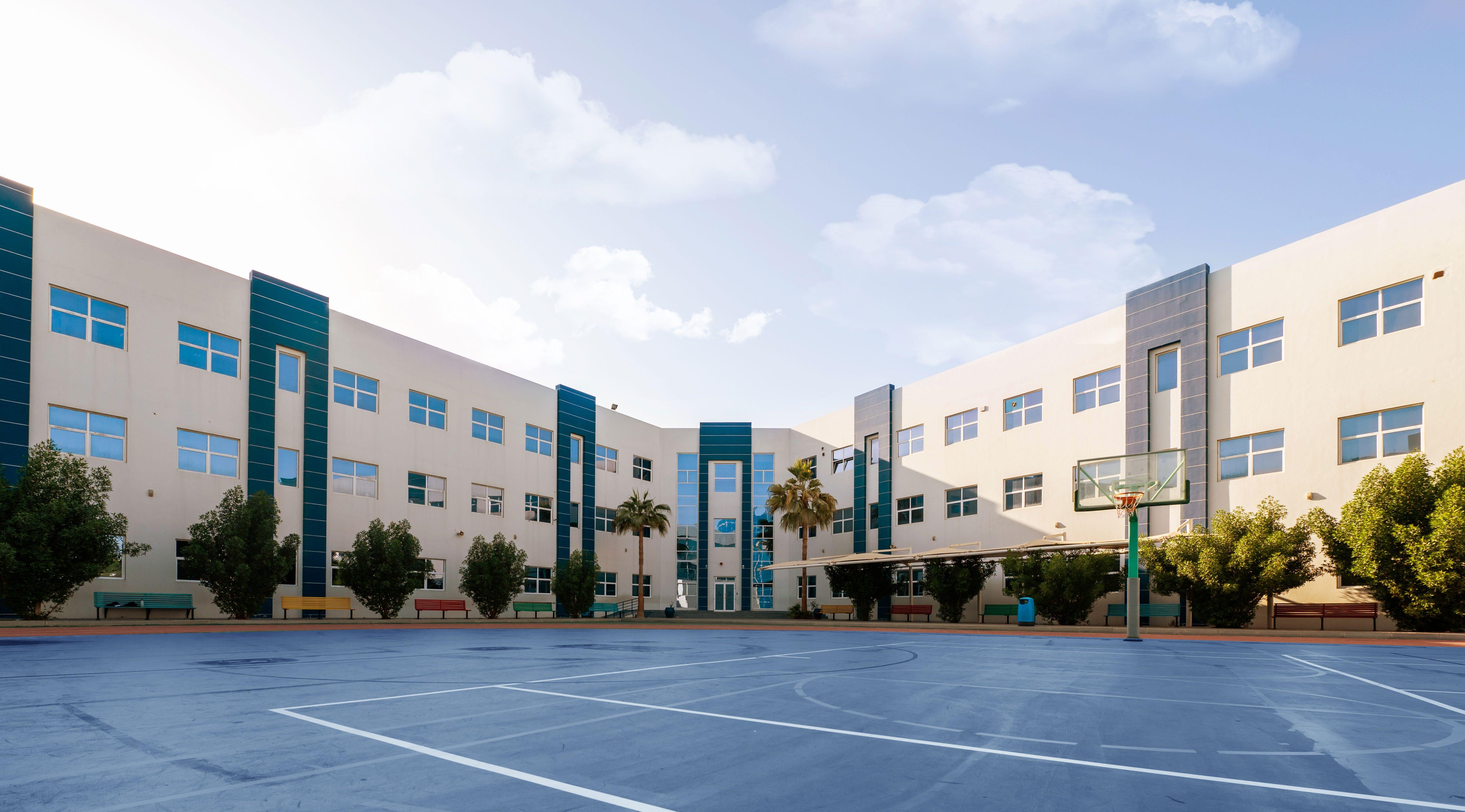


It gives me great pleasure to give you a glimpse of what an outstanding BSB education looks like. We are incredibly proud of the 6th form experience that we offer to students, which reaches far beyond the subjects studied. Through the well rounded, whole child education, which includes the development of key interests, values, personal skills and collaboration, academic results are also enhanced. BSB has been proud to consistently achieve the best results in the country, which is the culmination of the dedication and support of our outstanding staff, as well as empowering our students to be independent, critical thinkers who thrive in an academic setting. We achieve this through a variety of pathways to University, enabling a diverse range of students to find a set of courses that provide them with the best preparation for their chosen university course and career, ensuring they are successful in that pathway. I look forward to meeting you in our 6th form and am happy to support and guide parents and students in finding their own pathway to success.
There is a wealth of information in this guide, which combines with the guidance of teachers, families and independent research into future pathways. The subject choices students make for 6th form study shape their future prospects, so it is important that they are given due consideration.
Independent learning is a crucial part of life in the 6th form and is the foundation for success. Students receive a number of independent study periods on their weekly timetable, depending on their chosen courses, for reflection, consolidation and further study. It is essential that this time is planned and focused, to enhance academic outcomes. Students have a range of areas to work in, designed for silent, independent work, group study, and also a space to take a short break before returning to their studies.
In the classrooms, students will find teachers providing less direct instruction and more facilitation of exploration of topics, themes and ideas, through a variety of activities and experiments. Teachers are always available to provide support and guidance, and work closely with students to ensure personal progress.
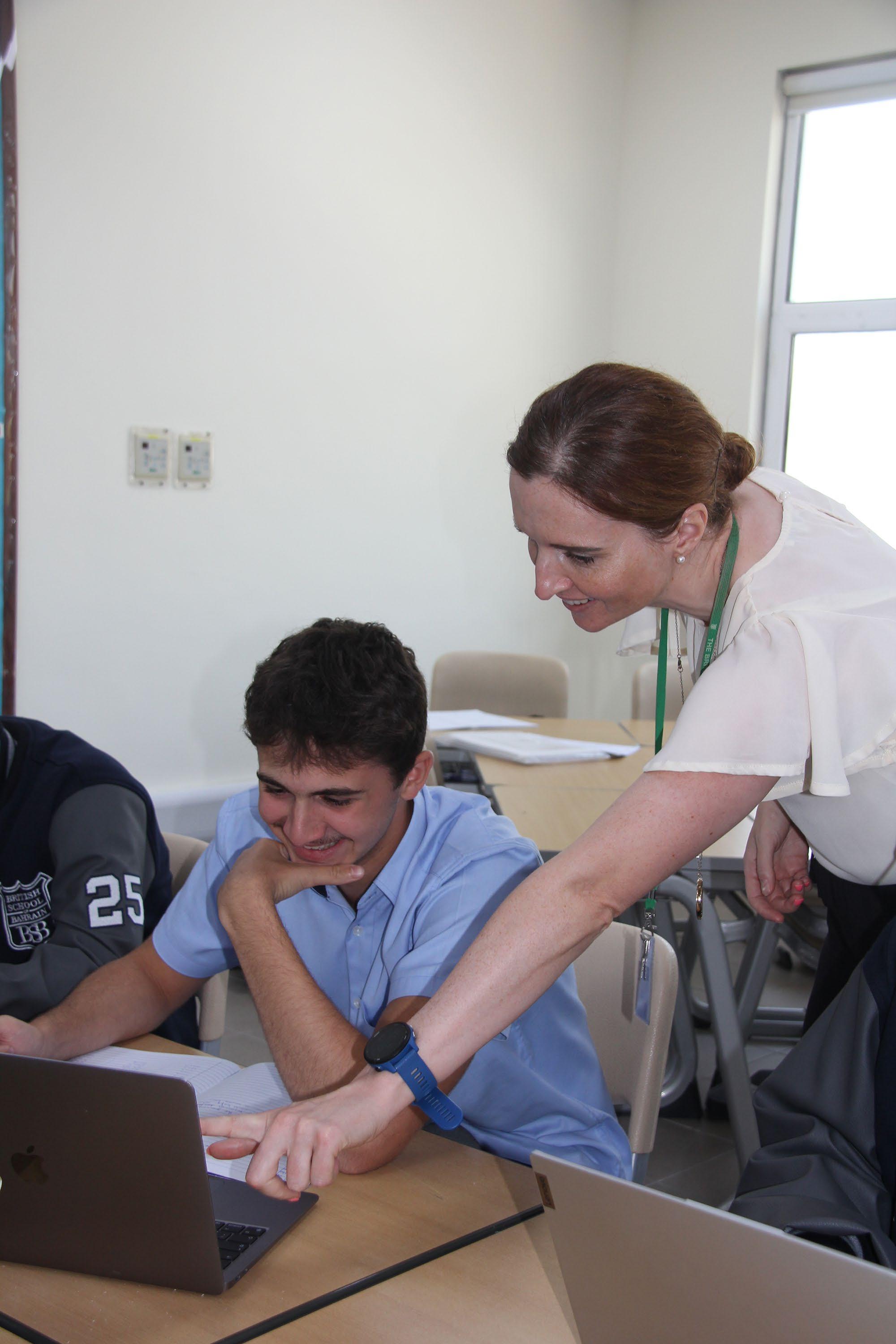
The transition into 6th form is more than simply moving to a new year group. They are entering an environment where the emphasis is on their own motivation and determination to be successful. To help with that transition and future preparation, students are placed into form classes that combine Lower and Upper 6th students, which provides a natural mentoring approach within the students to support each other. Furthermore, students are grouped based on their subject choices, interests and future aspirations, providing a constant source of like minded conversation and support, whilst sharing the burden of researching future pathways and choices. These groups are led by a form tutor who is also an expert in the specific area of interest, in order to guide and support discussions and pathways.
All students are provided with comprehensive feedback throughout their courses, including reflection time after assessments to learn from them and develop further. Parents are kept informed through the regular report cards, and are also invited to parent-teacher meetings at various points throughout an academic year. Parents are also welcome to contact the form tutor for any queries they may have regarding academic performance, university choices or any other topics they may wish to discuss.
Be welcomed into our supportive, vibrant community by their peers, form tutor, 6th form leadership team and teachers.
Pursue a personalised programme of study delivered by experienced, caring and responsive teachers.
Choose from a wide variety of A Level and BTEC pathways, whilst having the opportunity to engage in a wide variety of extra curricular activities and enrichment programmes.
Develop a range of skills essential for life in the 21st century, particularly time management, collaboration and leadership skills.
Benefit from expert guidance to assist you with university choices and applications.
2 year, subject based qualifications, with examinations as the main assessment method. Almost all are modular, with examinations spread over the two-year course. This enables students to stay informed of progress and reduce students’ reliance on memorisation techniques for revision. A small number of A Levels remain linear by necessity, with all examinations at the end of Upper 6th. Some subjects may have an element of coursework as part of the assessment. A Levels are the gold standard for global Universities, particularly for high performing students who achieve top grades at GCSE level. Typically, students perform very well in A Levels, especially if they have met the desired grade for the chosen subject. Annually, between 15-25% of all A Level qualifications are awarded at A*, and 40-50% are awarded to students at grade A*-A. This is no accident, as students are expertly guided by dedicated teachers who have high expectations and push students to above and beyond their comfort zone to achieve their very best.
Coursework based qualifications that require no examinations. Students complete a range of assignments, which are graded and accumulated throughout the course. International BTECs include a controlled assessment, which involves working in supervised conditions with access to preparatory work completed prior to the start of the assessment. BTECs are equivalent to one, two or even three A Levels. BTEC qualifications can be awarded at varying levels, differing by the amount of work completed, which is determined by the school at the start of the course.
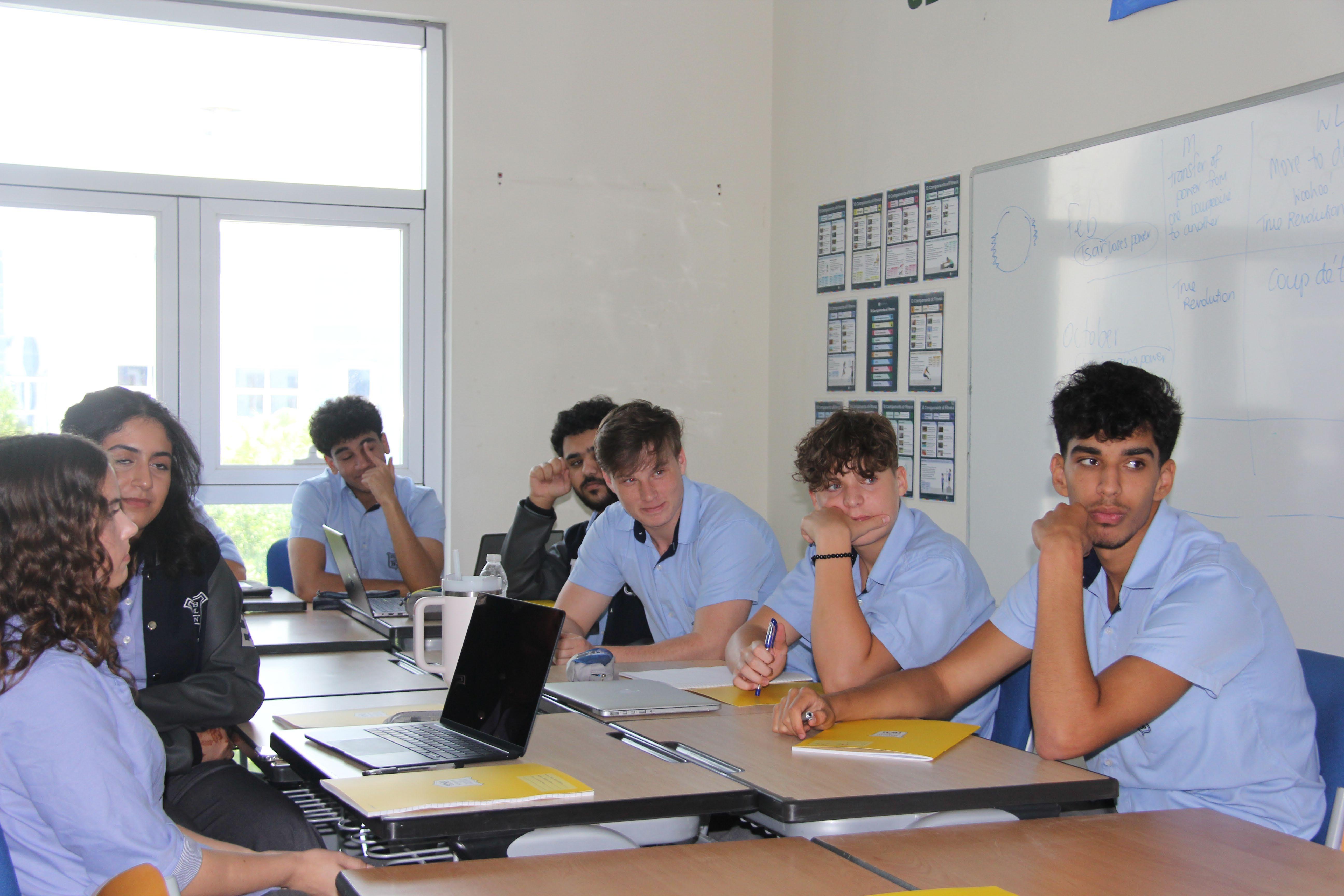
BTEC Award
BTEC Level 3 certificate
BTEC Level 3
Subsidiary Diploma
BTEC Level 3 Diploma
BTEC Level 3
Extended Diploma
BTECs are graded slightly differently to A Levels, but hold equivalent value.
As the first school in Bahrain to offer BTEC qualifications, we are incredibly proud of the variety of pathways and flexibility of study that they enable us to offer. Typically, students with mid to low grade GCSEs are more successful in BTEC studies, due to the more practical nature of courses and the ability for teachers to support coursework completion more closely. Any student who chooses a BTEC course should be aiming to achieve distinction and distinction* grades, and should feel confident that they will achieve it.
Historically, BSB students have performed exceptionally in BTEC studies, with over 80% of BTEC grades awarded at Distinction or distinction* since they were introduced in 2015.
BTEC qualifications enable access to a growing number of global universities. Most UK universities accept BTEC qualifications, including many of the prestigious Russell Group. Additionally, universities across Europe, USA and Asia also accept BTEC qualifications, with students advised to check individual universities for their specific requirements. Some may ask for a particular type of BTEC, such as a diploma or extended diploma, so it is important for students to make sure their choices satisfy the entry criteria of their chosen universities.

The answer to this question is very personal, but some general guidelines
Students should aim to choose subjects that interest them and where they
A Levels, BTECs or a combination of the two are all acceptable pathways.
Students should discuss choices with a wide range of people, including parents, teachers and the 6th form leadership team, but ultimately it should
Students should be realistic; the entry criteria for each subject is carefully created using a wealth of historical data, to ensure that every student can be
If examinations are a concern or worry, consider choosing BTECs, to avoid
Taking four subjects is not a ‘must.’ Most students will graduate with three A
If students have any doubts or confusion, they should talk to the 6th form leadership team. They will be able to advise and guide students towards a pathway they will be happy with and successful in.
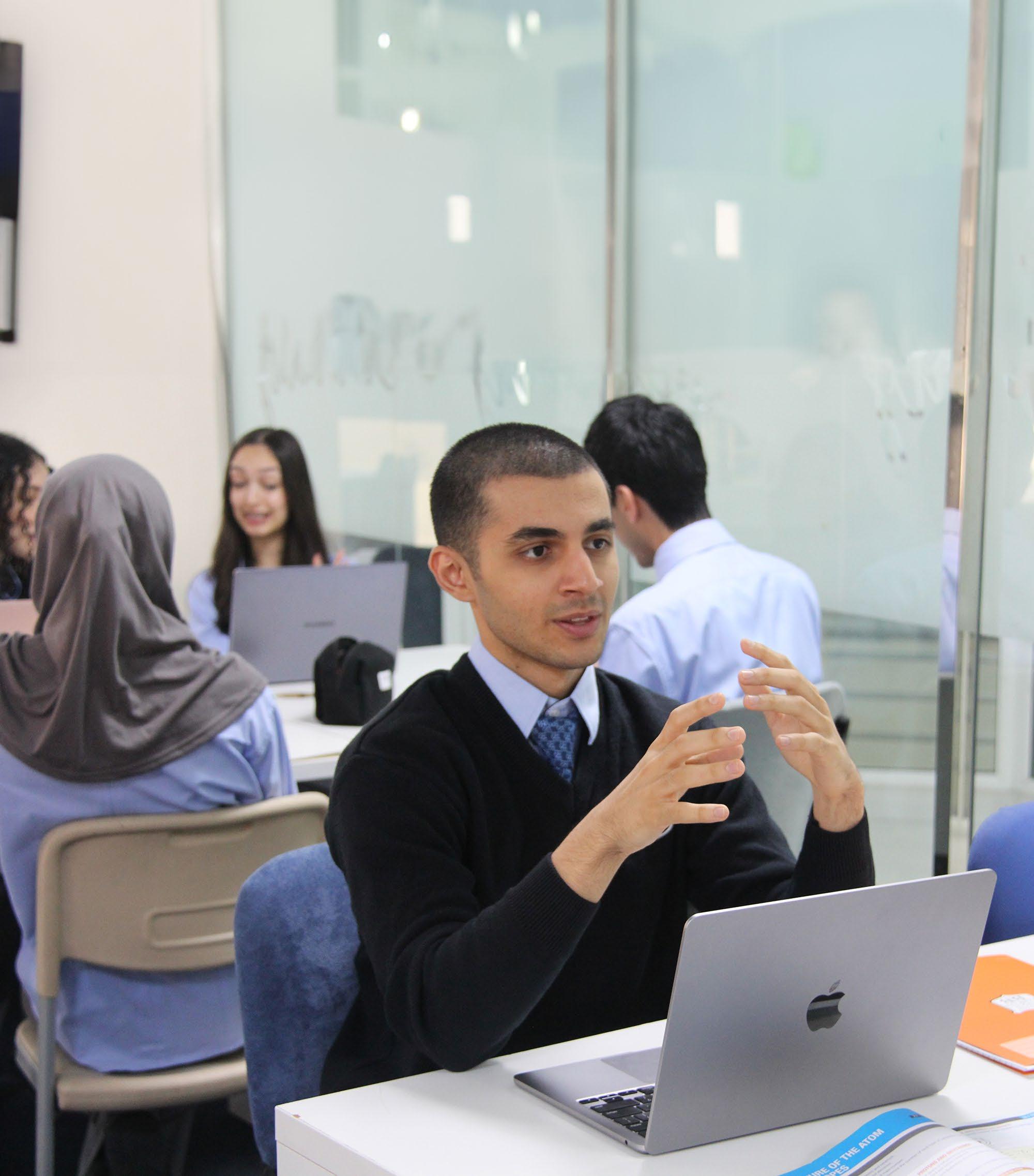
The process begins almost immediately in Lower 6th. Students will spend the first term looking at various countries, institutions and courses, as they start to narrow down their choices. Students should pay particular attention to the Desired grades of different institutions around the world, and make sure they complete any additional requirements in a timely manner, such as SATs, IELTs or subject specific entrance examinations. The application process ends in October of Upper 6th, when students are expected to submit their applications. This allows them to focus all of their energy and effort throughout the Upper 6th on their academic performance, which remains the most important requirement for acceptance onto a university course.
We encourage our students to complete work experience during the school holidays between GCSE and Lower 6th or between Lower and Upper 6th. This is especially important for those who are planning a medical degree. However, all universities like to see reference to work experience in the personal essay or statement, even if the student has changed career path. We often use information from employers to add to the reference we write for students. Work experience can also give the student a good insight into the work involved in their chosen career path.
Some A Levels are more frequently required by top universities for entry into their courses. They are known as ‘facilitating subjects’ because they are considered desirable by universities for the knowledge and skills they build. Subjects commonly referred to as facilitating include: biology, chemistry, English literature, geography, history, physics, mathematics, and Modern Foreign Languages.
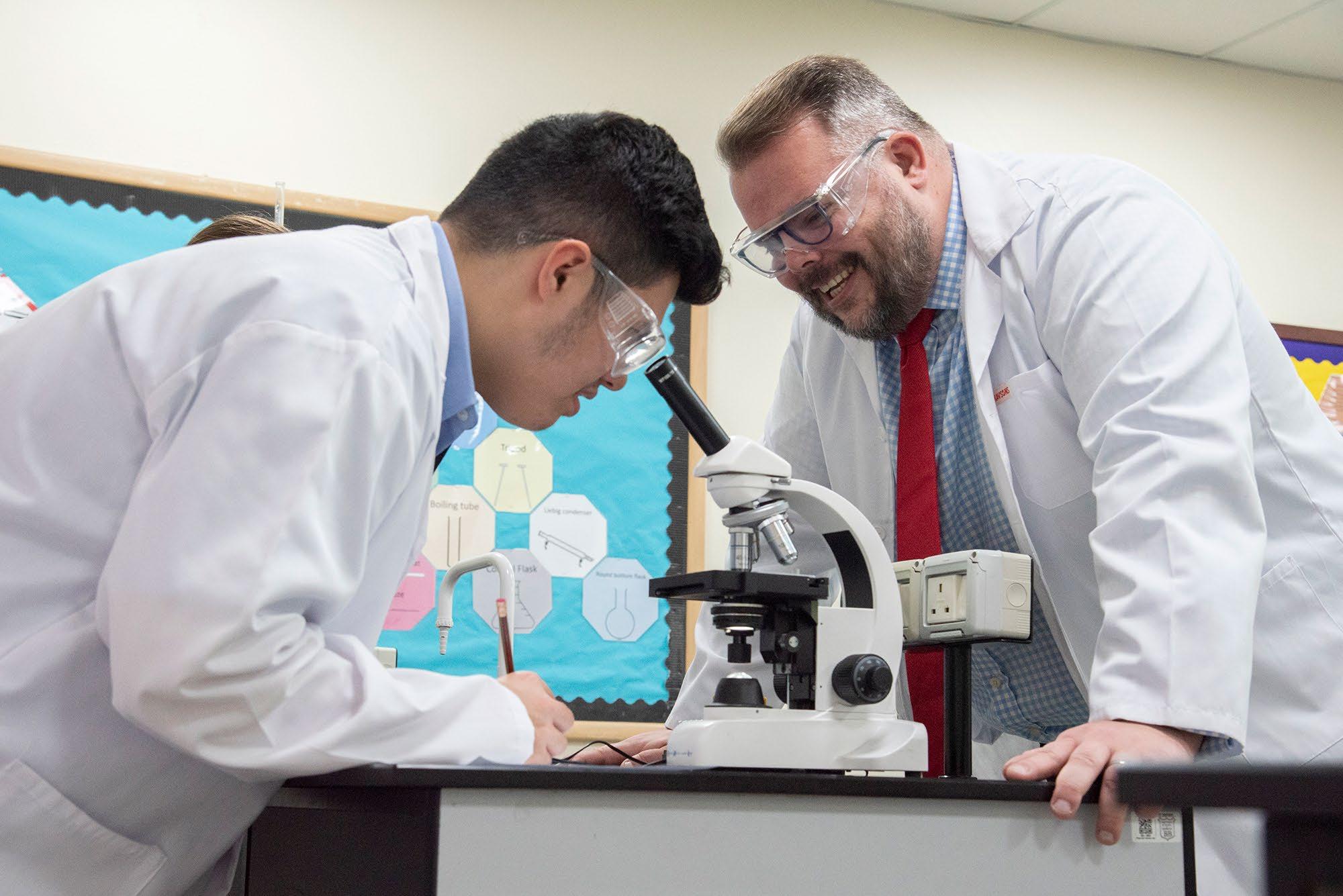
Students will need to achieve a minimum of 5 GCSEs, including English and Mathematics, graded at A*-C (9-4). If taking English as a second language, they should achieve at least a grade A/7. In addition, students should look at the desired grade for each subject as a benchmark for expectations. If students have not reached the desired grade, it is likely that an alternative pathway will be advised. Additionally, a strong work ethic and positive attitude towards studies will ensure fair consideration before course entry is finalised. This process ensures that students are placed on a pathway to ensure success in their studies.
A LEVEL COURSES SUBJECT
Arabic (modular)
Art (linear)
Biology (modular)
Business Studies (modular)
Chemistry (modular)
Computer Science (modular)
Edexcel IAL (9FR0)
Edexcel A Level (9FA0)
Edexcel IAL (YBI11)
Cambridge IAL (9609)
6 or above in Arabic First Language or A or above in Arabic Second Language
6 or above in Art, or acceptance of a submitted portfolio of work to show interest and potential in Art
7 in Biology or 77 in combined Science. 7 in Mathematics is desirable
6 in Business. 6 or above in English and Mathematics if GCSE Business has not been studied
Edexcel IAL (YCH11)
7 in Chemistry or 77 in Combined Science, plus 7 in Mathematics
Cambridge IAL (9618)
7 in Computer Science. 6 in Mathematics and Physics is desirable
Drama (linear)
Economics (linear)
English Literature (modular)
Edexcel A Level (9DR0)
Edexcel A Level (9EB0)
Edexcel IAL (YET01)
4 or above in English, plus an active interest in performing. GCSE Drama is desirable
French (modular)
Edexcel IAL (YFR01)
Further Mathematics (modular)
Edexcel IAL (YFM01)
7 in Economics. 7 in English and Mathematics is desirable
7 or above in English Literature. Students will be considered if they have achieved 7 in English Language.
Geography (modular)
Cambridge IAL (9696)
6 or above in French
8 or above in Mathematics (students must also choose Mathematics as an option)
6 or above in Geography
History (linear)
Edexcel A Level (9HI0)
6 or above in History
Mathematics (modular)
Edexcel IAL (YMA01)
7 or above in Mathematics
Music (modular)
Cambridge IAL (9483)
6 or above in Music, plus performance standard of at least a Grade 6 in ABRSM or Trinity
Physics (modular)
Edexcel IAL (YPH11)
7 in Physics or 77 in Combined Science, plus 7 in Mathematics
Physical Education (linear)
Psychology (modular)
Spanish (modular)
Extended Project
Qualification
Applied Science (Biomedical Sciences)
Business
Engineering
IT
Sport
Edexcel A Level (9PE0)
Edexcel IAL (YPS01)
6 or above in Science subjects, plus play one sport at a competitive level. GCSE Physical Education is desirable
6 in Psychology. 6 or above in English and Mathematics if GCSE Psychology has not been studied
Edexcel IAL (YSP01)
6 or above in Spanish
Edexcel AS Level (P301) 5 in English Language and a keen interest in a chosen area of study
Edexcel BTEC International Extended Diploma
Edexcel BTEC
International Diploma / Extended Diploma
Edexcel BTEC
International Diploma / Extended Diploma
Edexcel BTEC
International Subsidiary Diploma / Diploma
Edexcel BTEC International Subsidiary Diploma
5 A*-C/9-4 (or equivalent) including English and Mathematics. Grade 4 in two Sciences is desirable
5 A*-C/9-4 (or equivalent) including English and Mathematics. Grade 4 in Business studies is desirable
5 A*-C/9-4 (or equivalent) including English and Mathematics. Grade 4 in Physics is desirable
5 A*-C/9-4 (or equivalent) including English and Mathematics. Grade 4 in Physics is desirable
5 A*-C/9-4 (or equivalent) including English and Mathematics, plus a keen interest in Sport
GCSE Grades 8-9
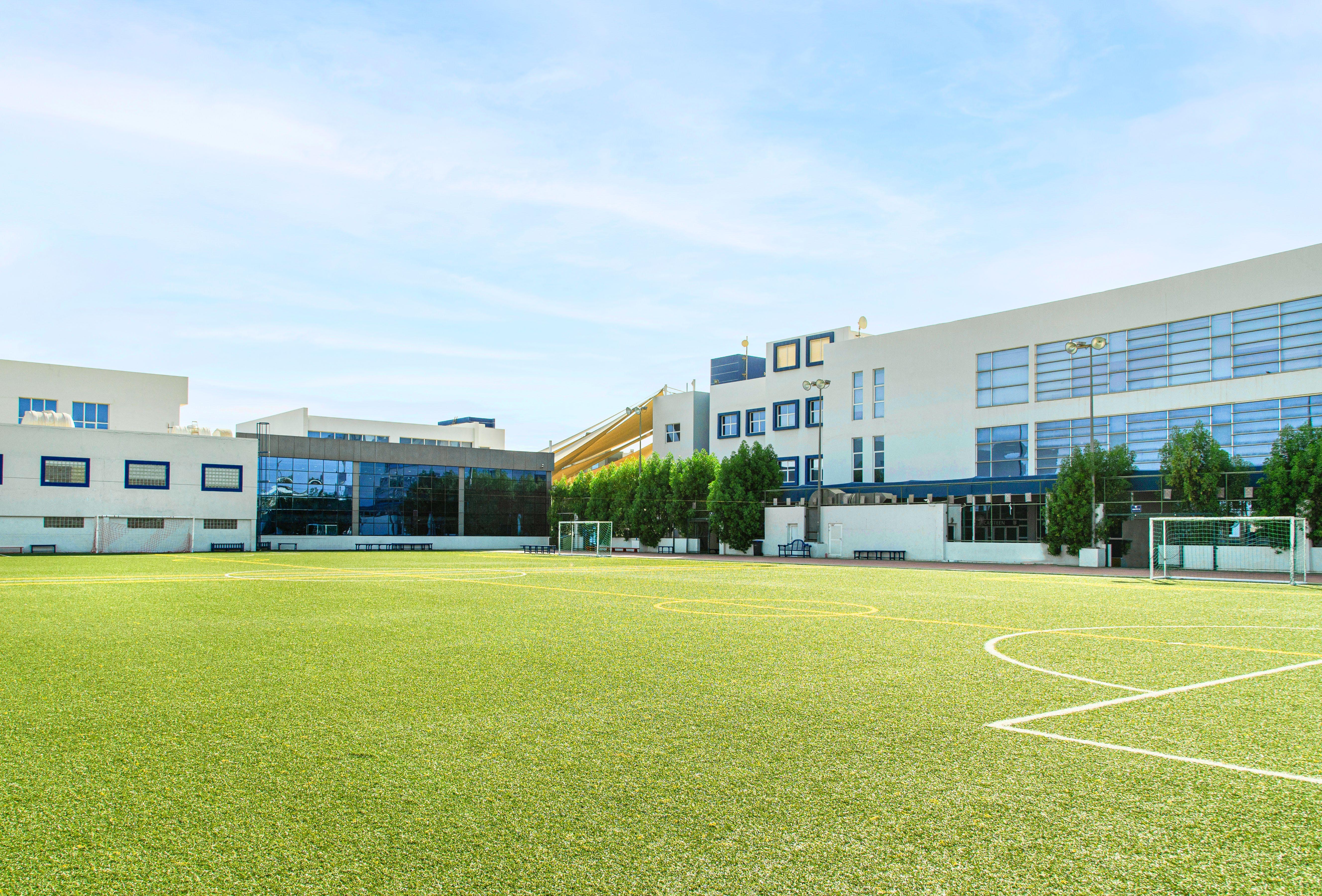
GCSE Grades 6-8
GCSE Grades 5-7
GCSE Grades 4-5
4 A Levels
*The only guarantee of a place on an A Level or BTEC course is to meet the entry criteria. The school will treat all applications on their individual merit and qualifications. A personalised discussion regarding choices and options will be held with all students following the release of GCSE results in late August.
**For all A Level courses, additional fees are payable for entry to examinations, invoiced ahead of each examination series. BTEC courses are subject to a registration fee, payable at the start of the course. Regardless of pathway, the approximate fees are comparable.

Students will build on the analytical skills developed at IGCSE English Language and Literature and will conduct more in depth studies of prose, poetry and drama. The examination texts are chosen by the department from a list provided by Edexcel.
Students will develop their communication skills (written and verbal) Students will learn how to work collaboratively and independently Students will learn a wide range of critical vocabulary and develop critical analysis skills. Students will develop their ability to write with increasing sophistication and precision.
This is a modular course, with unit examinations taken in January and June of Lower 6th, and January and June of Upper 6th.
Post-2000 Poetry and Prose (sat in January of Lower 6th)
Drama (sat in June of Lower 6th)
Poetry and Prose (sat in January of Upper 6th)
Shakespeare and Pre-1900s Poetry (sat in June of Upper 6th)
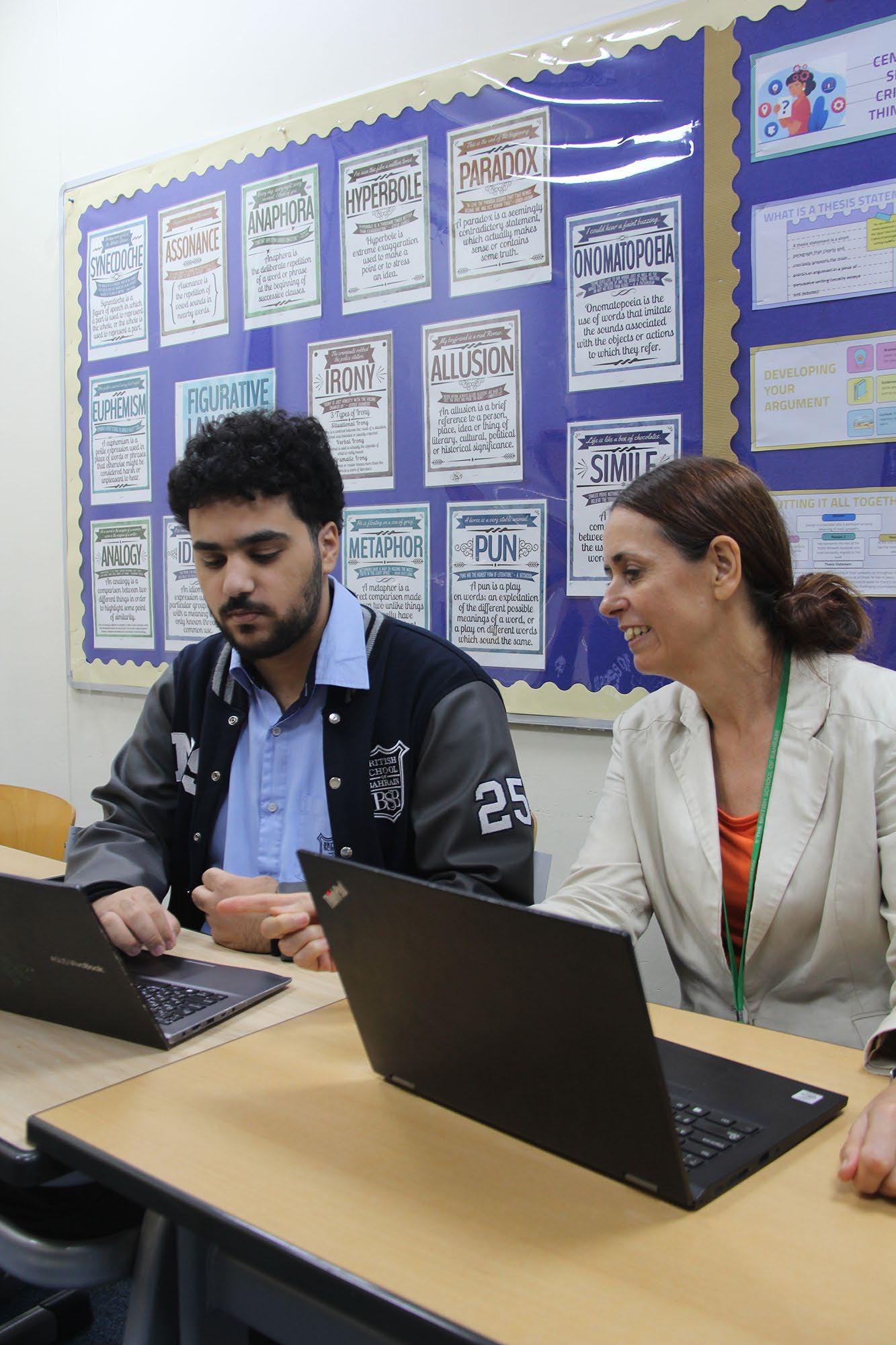
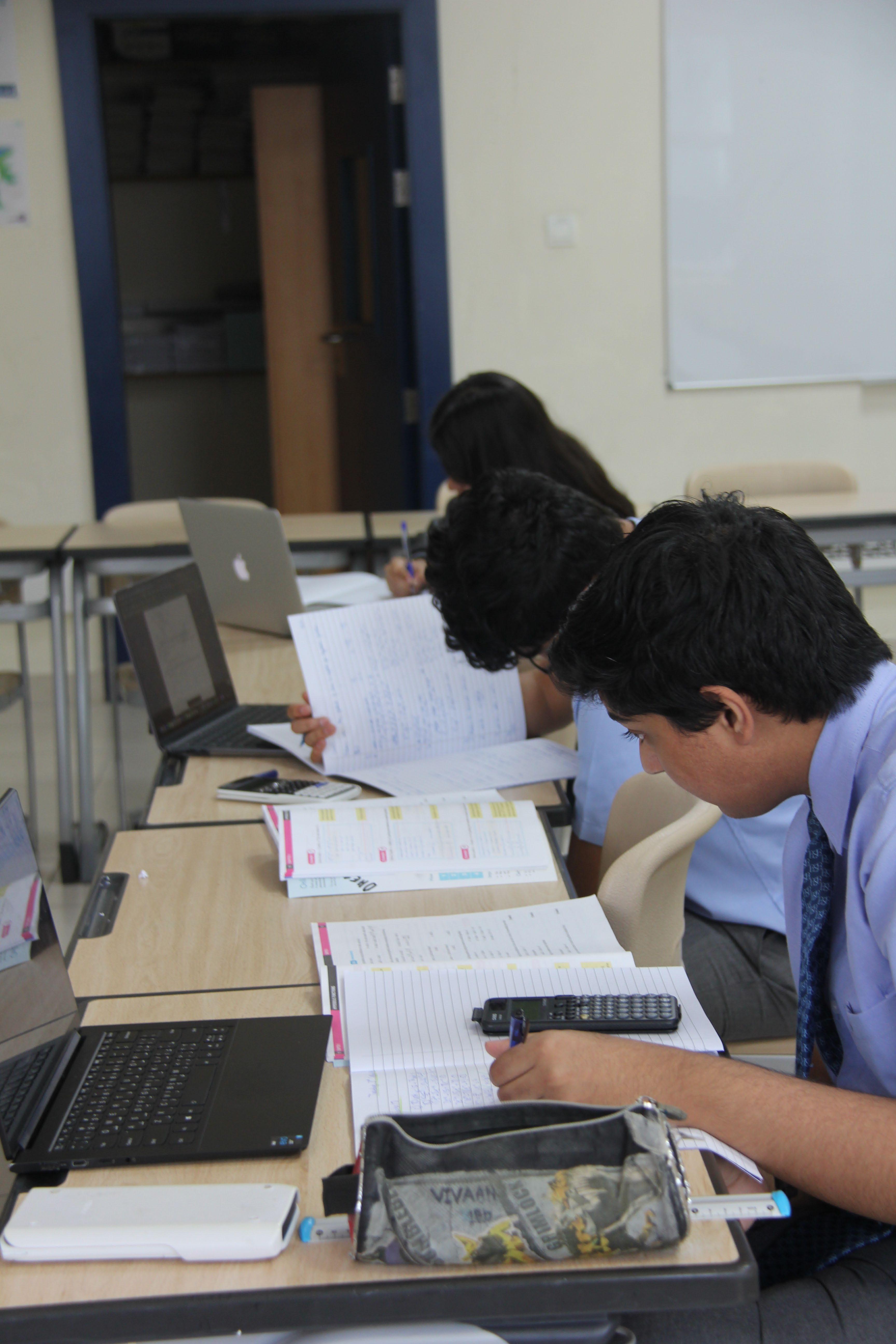
Desired grades 7 or above in English Literature. Students will be considered if they have achieved 7 in English Language Click here to view the course syllabus
English Literature is an excellent qualification to gain. Its academic rigour is well-known (e.g. the UK’s group of top 20 universities - the Russell Group - has designated it as one of their preferred ‘facilitating subjects’). A good grade in this subject is therefore helpful for any degree in: Arts, Humanities, Languages, Law etc. We even sometimes see scientists taking this subject along with the likes of biology, chemistry, physics and mathematics. English graduates themselves go on to a wide range of highly-skilled careers where their analysis, precise thought and highly-developed communication skills are much sought-after.
•
•
Develop an understanding of coherence and progression in mathematics and of how different areas of mathematics can be connected.
Recognise how a situation may be represented mathematically and understand the relationship between ‘real-world’ problems and standard and other mathematical models and how these can be refined and improved.
Read and comprehend mathematical arguments and articles concerning applications of mathematics.
• Extend their range of mathematical skills and techniques and use them in more difficult, unstructured problems.
Develop an awareness of the relevance of mathematics to other fields of study, to the world of work and to society in general.
Students will need to be able to problem solve; there should be good exam technique; steps to working should be clear and methodical; students should be able to contextualise answers.
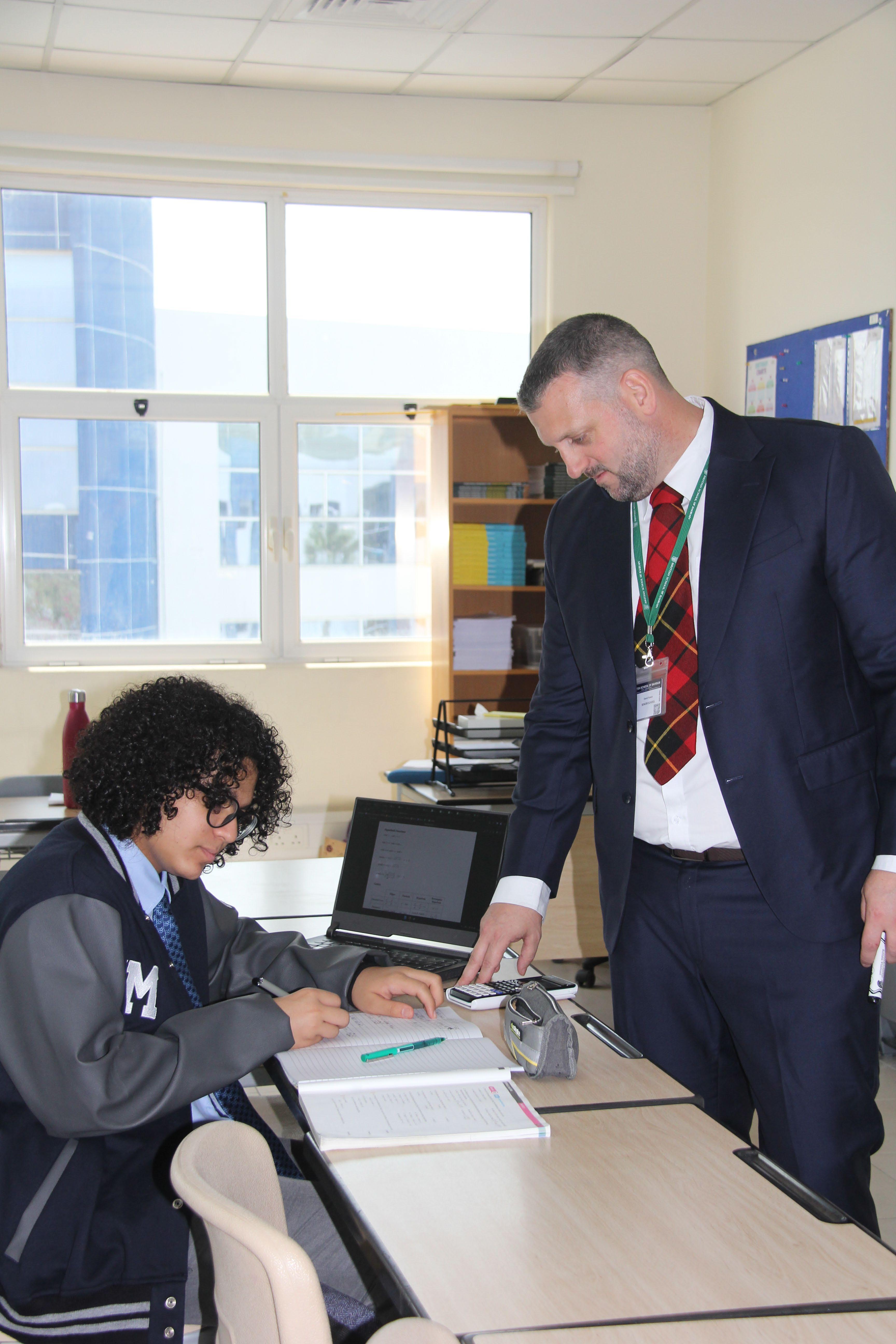
aminations in January and June. Students will be doing Pure Mathematics 1, 2, 3, 4, Decision 1 and Statistics 1.
Desired grades
7 or above in mathematics
Click here to view the course syllabus
Mathematics opens doors to many respectable courses as it is a demanding and well recognised A level. However, in order for it to provide opportunities students are required to secure a good grade at the end of the course (usually A or above), particulary if students wish to study in top UK universities. Studying Mathematics can lead to many career paths including accountancy, teaching, actuary and banking to name a few. engineering, sciences, computing, economics or finance.
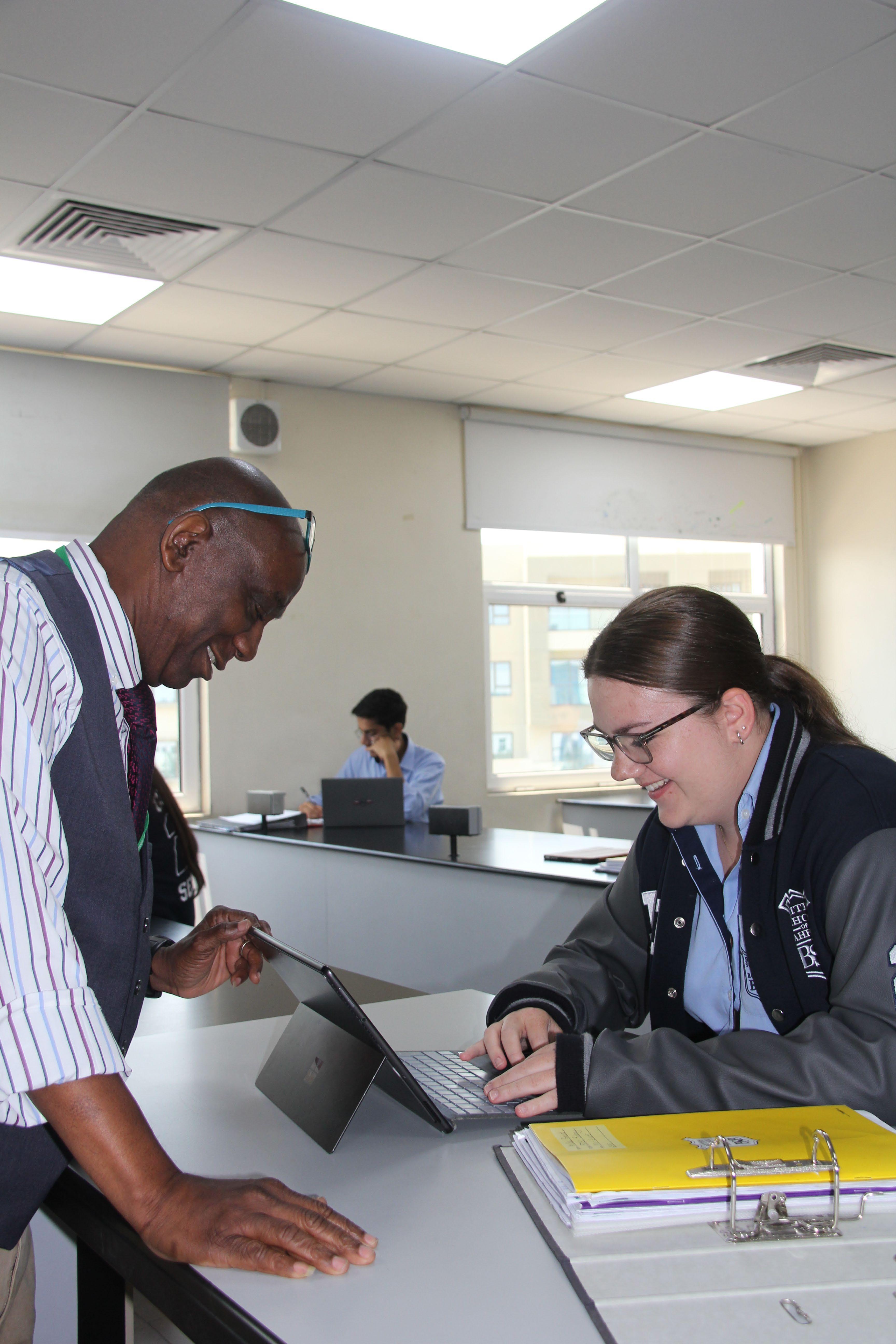
Students will follow further mathematics alongside A Level mathematics, extending their knowledge and understanding of advanced topics and concepts.
Students will need to be able to problem solve; there should be good exam technique; steps to working should be clear and methodical; students should be able to contextualise answers.
The course is modular. There are exams in January and in June. Students will take exams in Further pure mathematics 1, 2 and 3, Mechanics 1, Mechanics 2 and Statistics 2.


Desired grades
8 or above in mathematics (students must also choose Mathematics as an option)
Click here to view the course syllabus
Studying Further Mathematics reinforces, extends and deepens topics studied in A level Mathematics. Studying Further Mathematics highlights able mathematicians and assists with studying at degree level. It is particularly useful when studying engineering, sciences, computing, economics or finance.

The BTEC Applied Science (Biomedical Science) extended diploma has a basis that is rooted in understanding the core principles and applications of the main scientific disciplines. Throughout the course, students are faced with real-world scenarios that they must use the knowledge they have gained, applying it to unfamiliar situations to come up with solutions to very real problems.
As part of the course, they will undertake a research project, which will teach them a number of skills vital to success in future careers in scientific fields.
The elective units that form the additional content of this course are tailored towards candidates that have a desire to pursue biomedical, biochemical or pharmacological related pathways, as checked against UCAS Desired grades.
The BTEC Applied Science course will cover:
Cognitive and problem-solving skills – using critical thinking, approaching non-routine problems, applying expert and creative solutions, using systems and technology.
Exam Board Edexcel
Syllabus code BTEC International CZVK1
Interpersonal skills – communicating, working collaboratively, negotiating and influencing, self-presentation.
Intrapersonal skills – self-management, adaptability and resilience, self-monitoring and development.
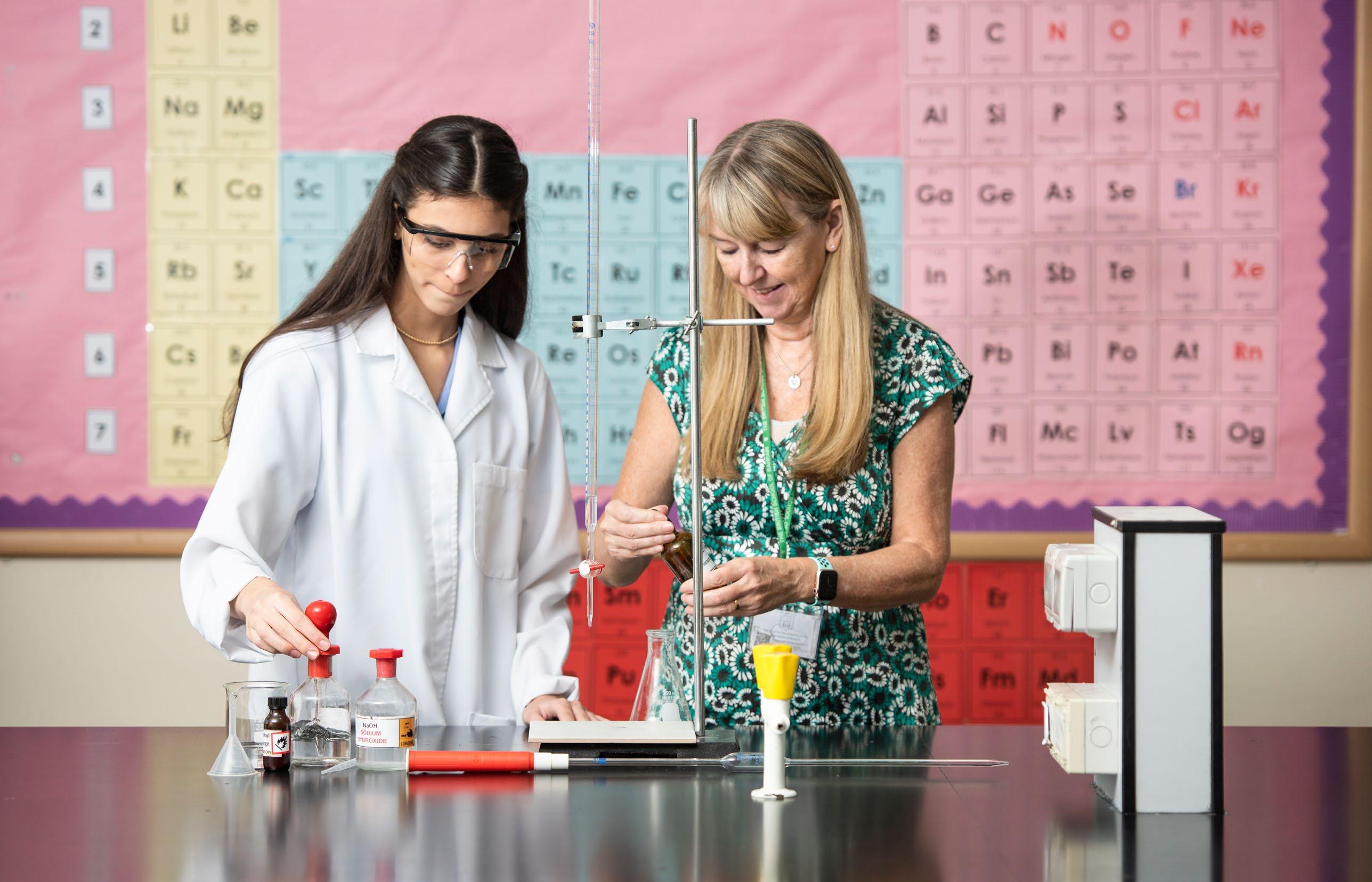
International BTECs are internally assessed allowing for practical assignments that combine knowledge and career related skills. 25% of these assignments will be set by Pearson to provide additional external standardisation. Assignments are scenario based and designed to be work relevant, for example by researching and presenting information and demonstrating the skills needed for employment.
This qualification is designed to support learners who want to study science-based qualifications as the main element alongside another area of complementary or contrasting study as part of a two-year, fulltime study programme. The qualification would support progression to higher education if taken as part of a programme of study that included other BTEC International Level 3 qualifications or International A Levels.
This qualification supports progression to job opportunities in the science industry at a variety of levels. Jobs available in these areas include:
• Chemical Technician
• Biomedical Scientist
• Clinical Scientist
• Environmental Scientist
5 A*-C/9-4 (or equivalent) including mathematics and English. Grade 4 in two sciences is desirable
Click here to view the course syllabus
This qualification supports progression to job opportunities in the science industry at a variety of levels. Jobs available in these areas include:
Chemical Technician
Biomedical Scientist
Clinical Scientist
Environmental Scientist.
After achieving this qualification, while learners can progress directly to entry-level science roles, it is likely that many will do so via higher study. This qualification is recognised by higher education institutions as fully meeting admission requirements to many relevant courses in a variety of areas of the science sector, for example: :
BSc (Hons) in Chemistry with Analytical Science
BSc (Hons) in Bioscience
BSc (Hons) in Environmental Science

Students will learn the major topics in biology, including biological molecules, diet, transport, health, cells, development, biodiversity, conservation, energy, the environment, microbiology, immunity, respiration, the internal environment, coordination and gene technology.
Students will learn to apply their knowledge and understanding to familiar and unfamiliar contexts; they will develop experimental skills, and a knowledge and understanding of experimental techniques, by carrying out a range of practical experiments and investigations; they will analyse and evaluate of scientific information to make judgments and reach conclusions.
The course is modular. Students will sit three modules each in lower and upper 6th.

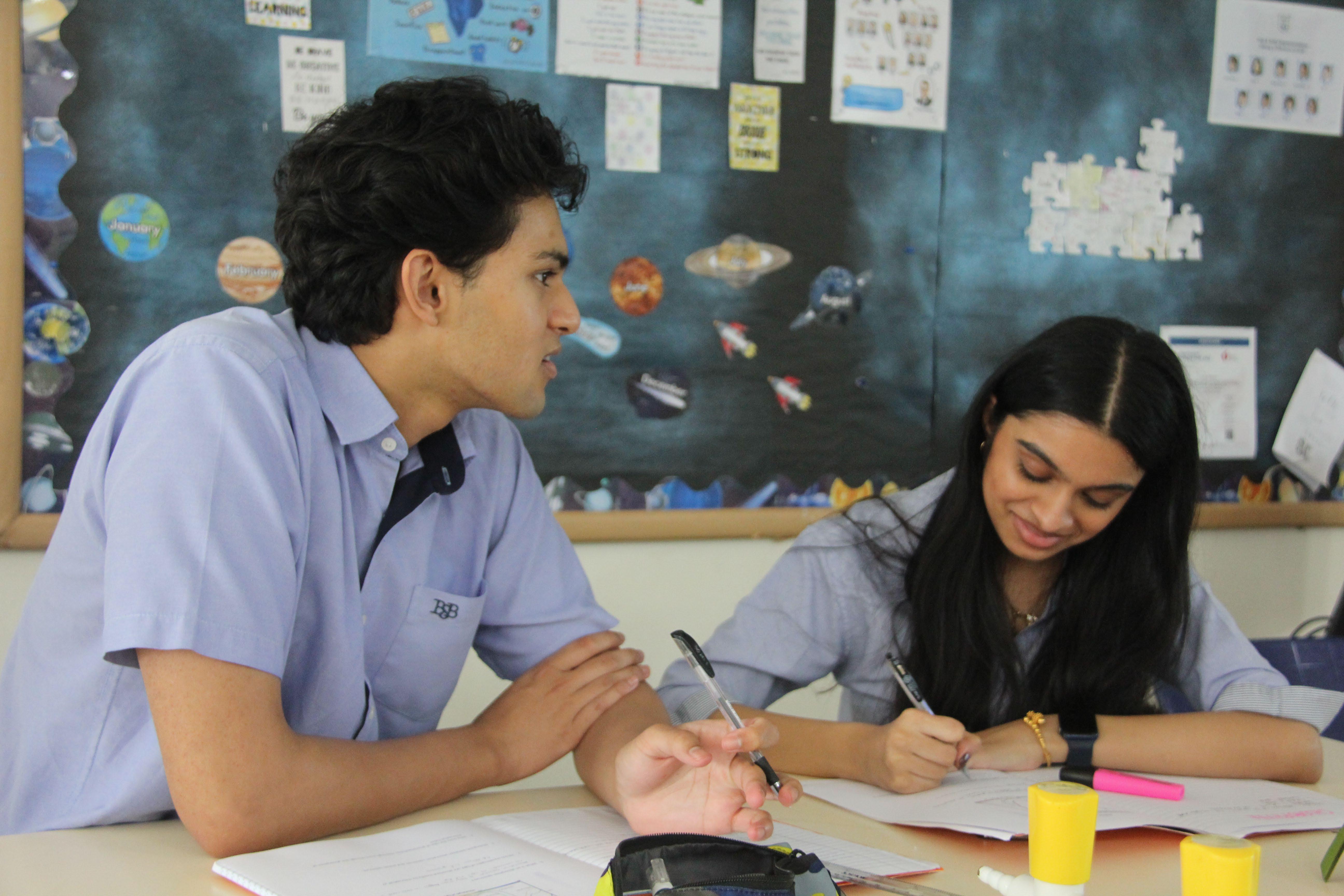
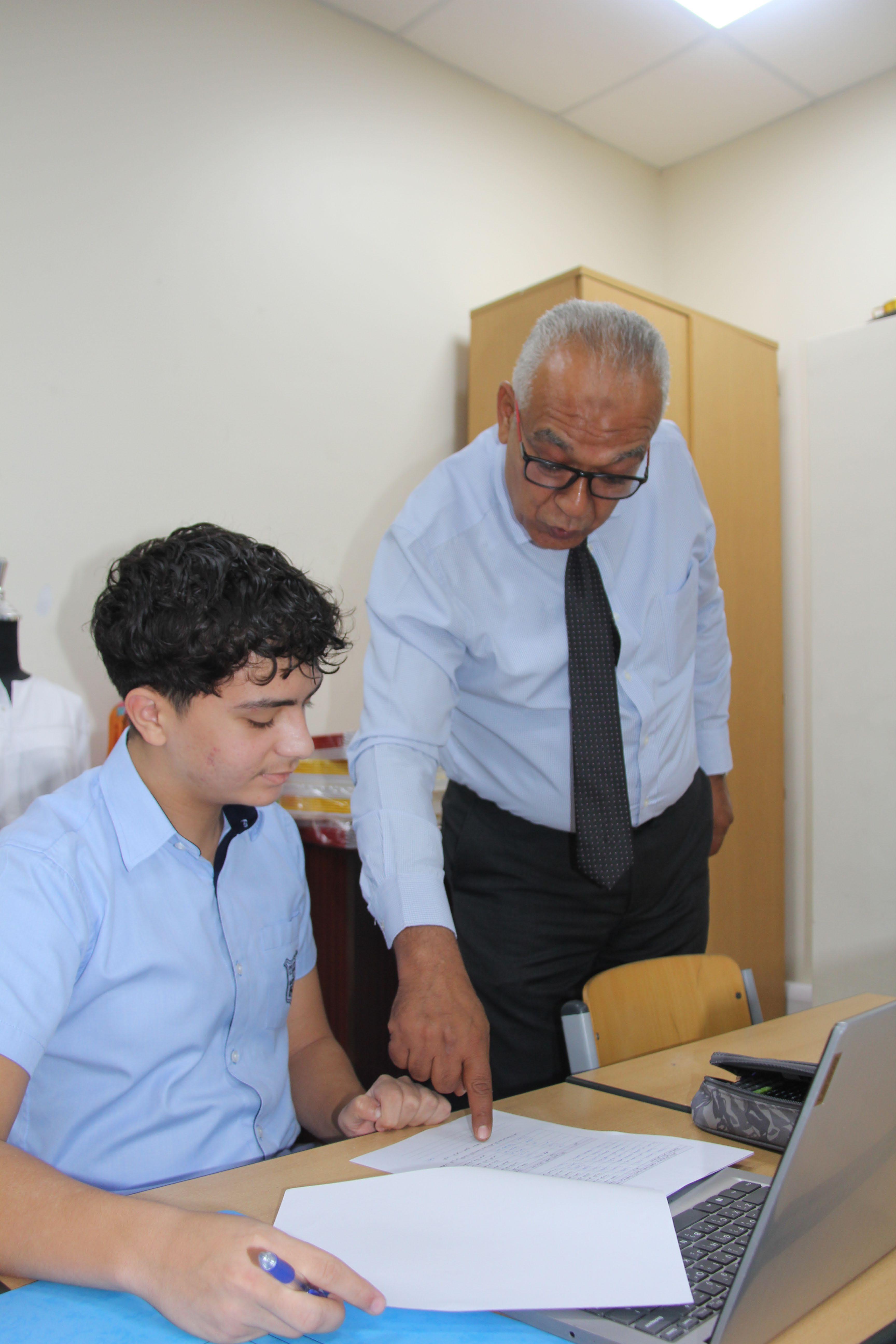
Desired grades
7 in biology or 77 in combined science. 7 in mathematics is desirable
Click here to view the course syllabus
Biology is important for students considering careers in areas such as medicine, veterinary medicine, dentistry or forensic science. The skills developed in A Level Biology can be applied across a range of careers, including non-scientific professions such as law, finance or teaching. Biology is one of the facilitating subjects identified by the Russell Group of universities.
Component name
Assessment method
Weighting %
Molecules, Diet, Transport & Health Cells, Development, Biodiversity & Conservation Practical Skills in Biology Respiration, Internal Environment, Coordination & Gene Technology
Energy, Environment, Microbiology & Immunity
Practical Skills in Biology II
Students will learn the major topics in chemistry, including molar calculations, structure and bonding, energetics, rates, equilibria, Group chemistry, transition metals and a range of organic chemistry; as well as associated experimental skills.
Students will develop their knowledge and understanding of chemistry by applying its concepts to a range of different problems, set in a variety of contexts; Students will develop laboratory based practical skills and a reliable understanding of experimental techniques associated with the subject; Students will enhance their evaluative and analytical chemistry skills by using experimental data to assess scientific questions and reach suitable conclusions.
The course is modular. Students will sit three modules each in lower and upper 6th.
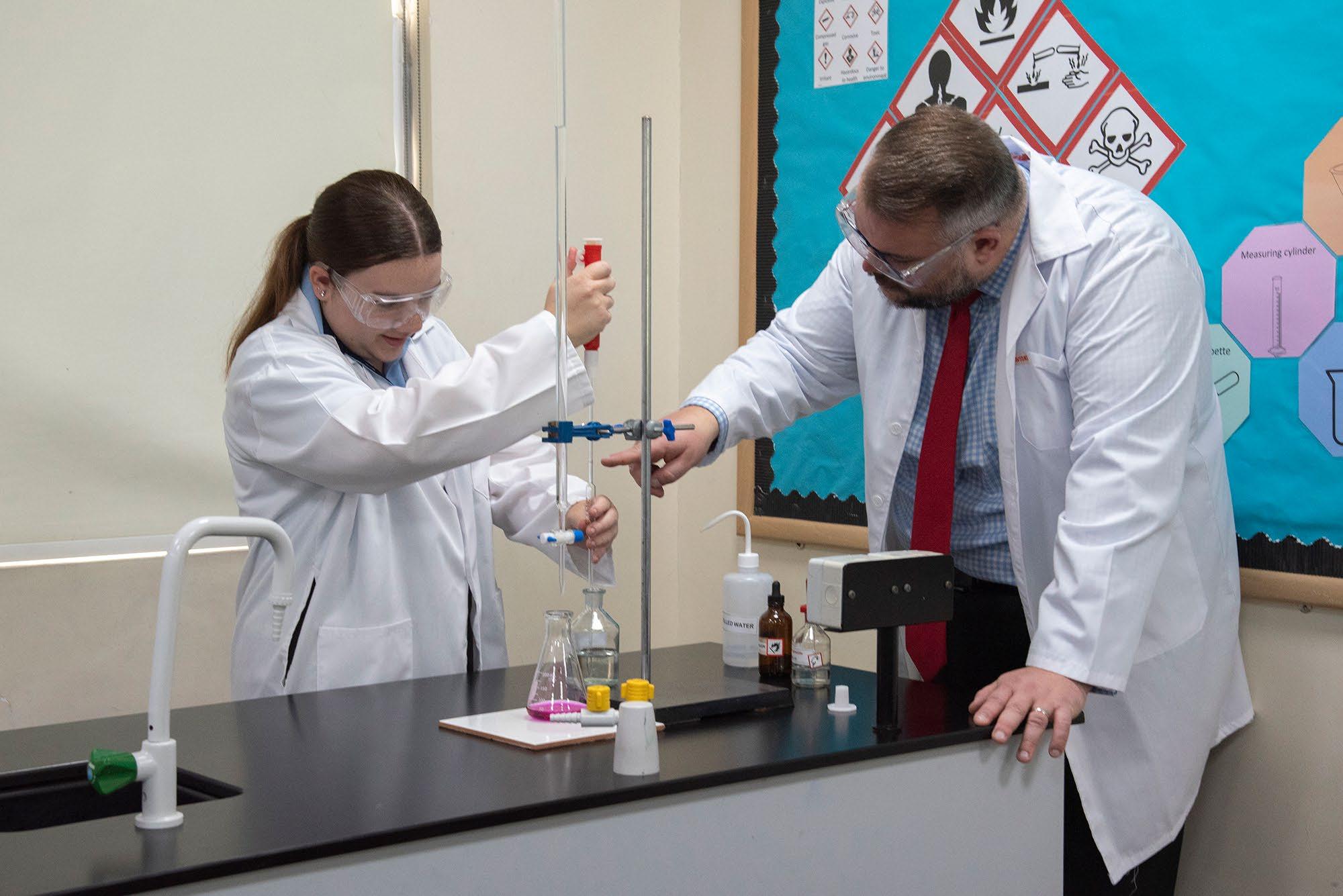
Desired grades
7 in chemistry or 77 in combined science, plus 7 in mathematics
Click here to view the course syllabus
Studying chemistry at A Level provides the necessary foundation for students wishing to move into scientific or medical based higher education courses. Often desired from top universities, the attainment of chemistry a level shows an excellent understanding of scientific content but also an aptituvde for other desirable skills, such as laboratory work and mathematical skills. Studying chemistry can lead into exciting career opportunities such as analytical chemistry, chemical engineering, healthcare science, forensic science, nanotechnology, pharmacology and toxicology. Chemistry is one of the facilitating subjects identified by the Russell Group of universities.
2Energetics, Group Chemistry, Halogenoalkanes & Alcohols
4 - Rates, Equilibria & Further Organic Chemistry
5Transition Metals & Organic Nitrogen Chemistry
Mechanics & Further Mechanics, Materials, Waves, Electric Current, Nature of Light, Fluid Movement, Momentum , Circular Motion, Electric Fields, Magnetic Fields, Electromagnetism, Capacitors, Particles, Thermal Energy, Nuclear Decay, Simple Harmonic Motion, Astrophysics & Cosmology.
Develop knowledge and understanding of what it means to work scientifically; develop confidence in key scientific skills such as handling and controlling quantities and units and making estimates; learn about how the scientific community functions and how society as a whole uses scientific ideas; develop the ability to think critically about what they read; gain practice in communicating information and ideas in an appropriate scientific way; apply their knowledge and understanding to unfamiliar contexts; plan experiments and analyse and evaluate data.
The course is modular. Students will sit three modules each in lower and upper 6th.

Desired grades 7 in physics or 77 in combined science, plus 7 in mathematics
Click here to view the course syllabus
A level Physics provides a suitable foundation for specialist study at University in mathematics, physics, mechanical engineering, computer science, civil engineering, economics and business. The course provides an excellent basis for all sorts of many amazing career options including geophysicist, healthcare scientist, research scientist, laboratory technician, meteorologist, patent attorney, technical author, astrophysicist, nanotechnology and renewable energy. With Physics the opportunities are endless. Physics is one of the facilitating subjects identified by the Russell Group of universities.
•
Read and respond to a variety of Arabic-language written texts, including authentic sources, covering different contexts, registers, styles and genres.
Adapt their written Arabic language appropriately for different situations and purposes.
•
Use the Arabic language accurately to express facts and ideas, and to present explanations, opinions and information in writing.
•
Understand and apply the grammatical system and a range of structures of the Arabic language as detailed in Arabic unit content: Grammar list.
•
• An understanding of a wide variety of complex reading texts for different purposes.
An understanding of standard written language on both unfamiliar and familiar topics normally encountered in personal, social, academic or vocational contexts.

Desired grades
6 or above in Arabic first language or A or above in Arabic second language
Click here to view the course syllabus
The course is modular. Students will sit 1 module in Lower 6th and they can continue their studies in Upper 6th by taking the full A Level.
The skills necessary for further study or employment, either in Arabic-speaking countries or where Arabic is used as the main medium of communication for business and commerce. This qualification is designed primarily as a qualification for students who are studying Arabic in order to enhance their future educational or employment prospects.
Component name
Assessment method
Weighting %
Duration of exam
Unit 1: Understanding and Written Response (XAA01) Section A: Reading, Section B: Grammar, Section C: Essay
Written Examination
100 % of the total IAS / 50 % of the total IAL 2 h 30 m
Unit 2: Writing and Research (YAA01) Section A: Mathematics 2 Translation, Section B: Creative/ Discursive Essay, Section C: Research-based Essay
Written Examination
100 % of the total IA2 / 50 % of the total IAL 3 h
This qualification consists of four externally assessed units. The International Advanced Level consists of the two IAS units (Units 1 and 2) plus two IA2 units (Units 3 and 4). Students wishing to take the International Advanced Level must, therefore, complete all four units. Students will learn to recognise and use the French language in a variety of contexts and in relation to a prescribed range of general topic areas as follows:
Youth matters
Lifestyle, health and fitness
Environment and travel
Education and employment
Technology in the French-speaking world
Society in the French-speaking world
Ethics in the French-speaking world.
Languages should appeal to all students and this course should inspire them to develop not only advanced level practical knowledge of the language but also an appreciation of the literature, films and culture of the target language countries. This course is designed to give students the opportunity to acquire valuable transferable study skills such as autonomy, resourcefulness, creativity, critical thinking and linguistic,

Desired grades
7 or above in French
Click here to view the course syllabus
The structure of these qualifications allows teachers to construct a course of study that can be taught and assessed as distinct modules of teaching and learning with related units of assessment taken at appropriate stages during the course.
Technology, globalisation and ease of international travel are bringing more of the world within our reach. Studying languages can give you that competitive edge. Knowledge of a foreign language can lead to exciting career opportunities that those without an extra language have little chance of accessing.
Component name
Assessment method
Weighting %
Duration of exam
Spoken expression and response
Oral Examination
30% of the total IAS 15% of the total IAL
Understanding and written response Understanding and spoken response Research, understanding and written response
Listening, Reading, Grammar and Writing Examination
70% of the total IAS 35% of the total IAL
Oral Examination
30% of the total IA2 15% of the total IAL
Listening, Reading, Grammar and Writing Examination
70% of the total IA2 35% of the total IAL
•
•
•
•
•
•
Pearson Edexcel International Advanced Level in Spanish This qualification consists of four externally assessed units. The International Advanced Level consists of the two IAS units (Units 1 and 2) plus two IA2 units (Units 3 and 4). Students wishing to take the International Advanced Level must, therefore, complete all four units. Students will learn to recognise and use the Spanish language in a variety of contexts and in relation to a prescribed range of general topic areas as follows:
• Youth matters
Lifestyle, health and fitness
Environment and travel
Education and employment
Technology in the Spanish-speaking world Society in the Spanish-speaking world Ethics in the Spanish-speaking world.
Languages should appeal to all students and this course should inspire them to develop not only advanced level practical knowledge of the language but also an appreciation of the literature, films and culture of the target language countries. This course is designed to give students the opportunity to acquire
Exam Board Edexcel
Syllabus code YSP01
valuable transferable study skills such as autonomy, resourcefulness, creativity, critical thinking and linguistic, cultural and cognitive flexibility, helping to prepare students for higher education and enhance their employability profile.
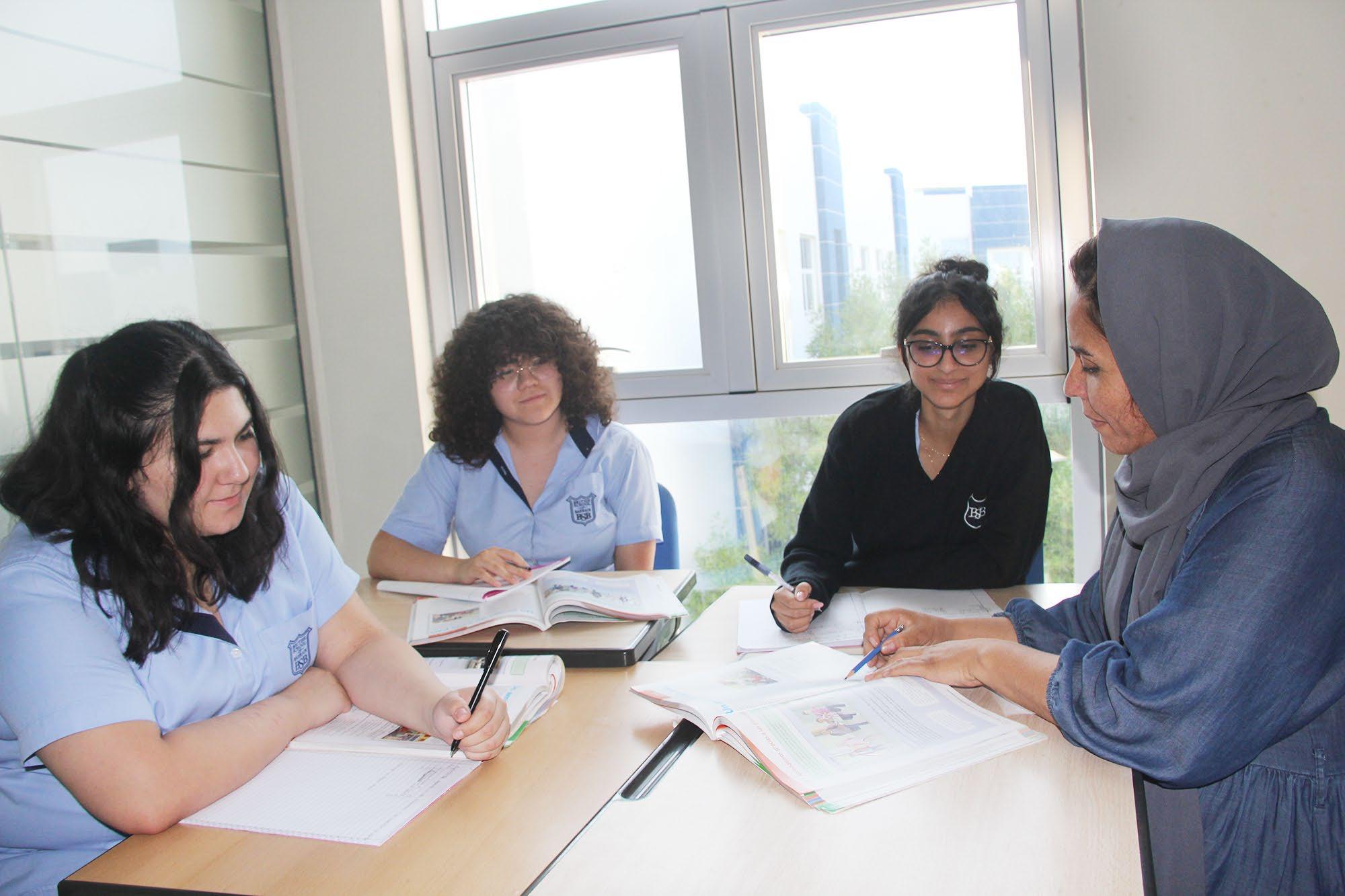
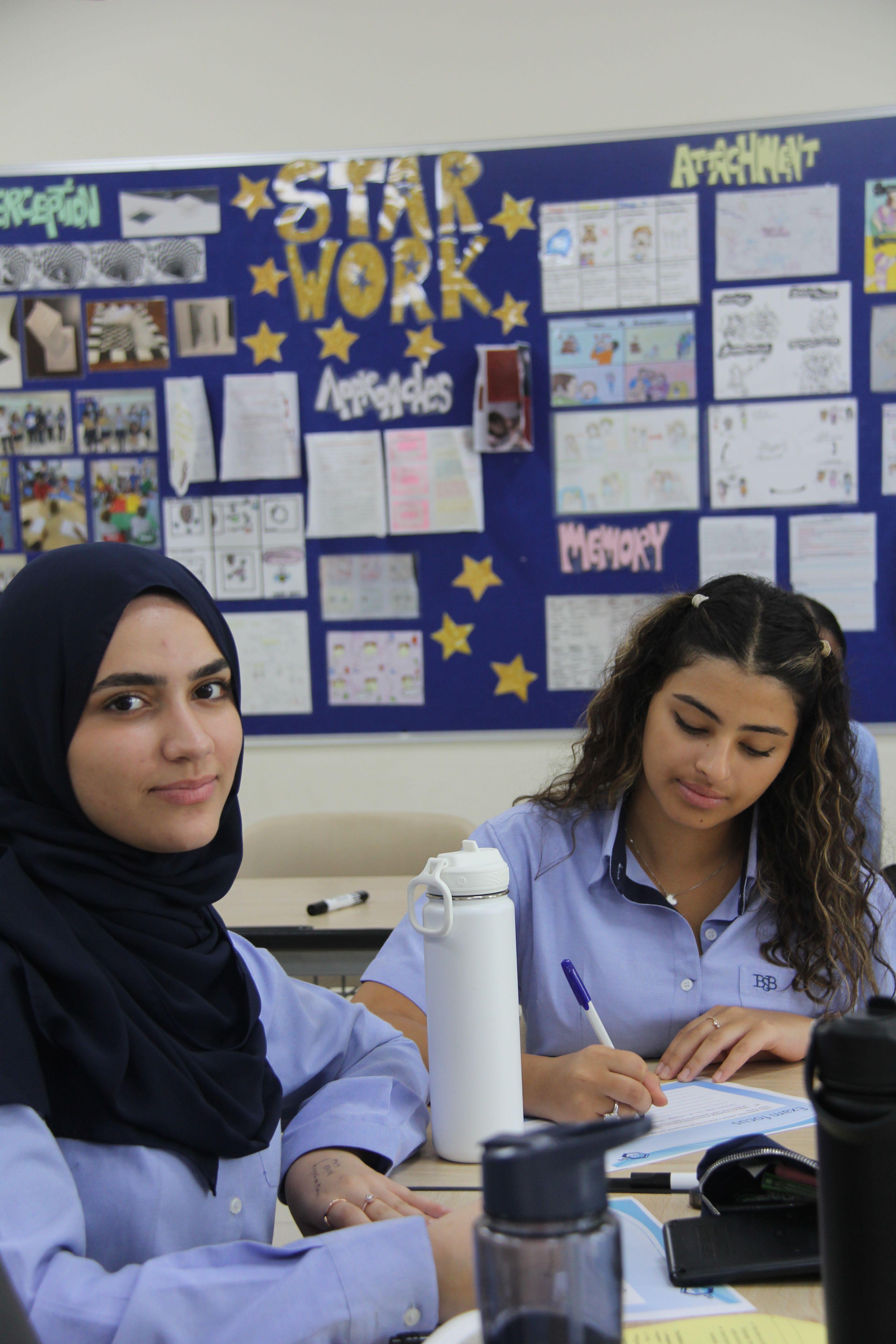
Desired grades
6 or above in Spanish
Click here to view the course syllabus
2 year linear course with exams in the final year. Students must complete their speaking assessment in April and all other assessments in May/June in any single year. All assessments are externally marked.
The question should be Why not study a language? Technology, globalisation and ease of international travel are bringing more of the world within our reach. Studying languages can give you that competitive edge. Knowledge of a foreign language can lead to exciting career opportunities that those without an extra language have little chance of accessing.
Component name
Assessment method
Weighting %
Duration of exam
Spoken expression and response
Oral Examination 30% of the total IAS
Understanding and written response
Listening, Reading, Grammar and Writing Examination
Understanding and spoken response Research, understanding and written response
Oral Examination
Listening, Reading, Grammar and Writing Examination

The A Level course builds on aspects of the iGCSE course. Students will develop an understanding of:
• •
The causes and effects of change on natural and human environments.
• The principal processes operating within physical geography and human geography.
An awareness of the usefulness of geographical analysis to understand and solve contemporary human and environmental problems.
Students will develop their problem solving skills, learning to analyse a variety of source material and present their ideas in a clear and logical fashion. They will also be able to link theoretical concepts and processes to real-world examples. The use of up to date and relevant case studies is an important feature in Geography. Students develop their wider understanding of recent storms and tectonic events in the news, current world situations like flooding in Pakistan and the energy crisis in Europe.
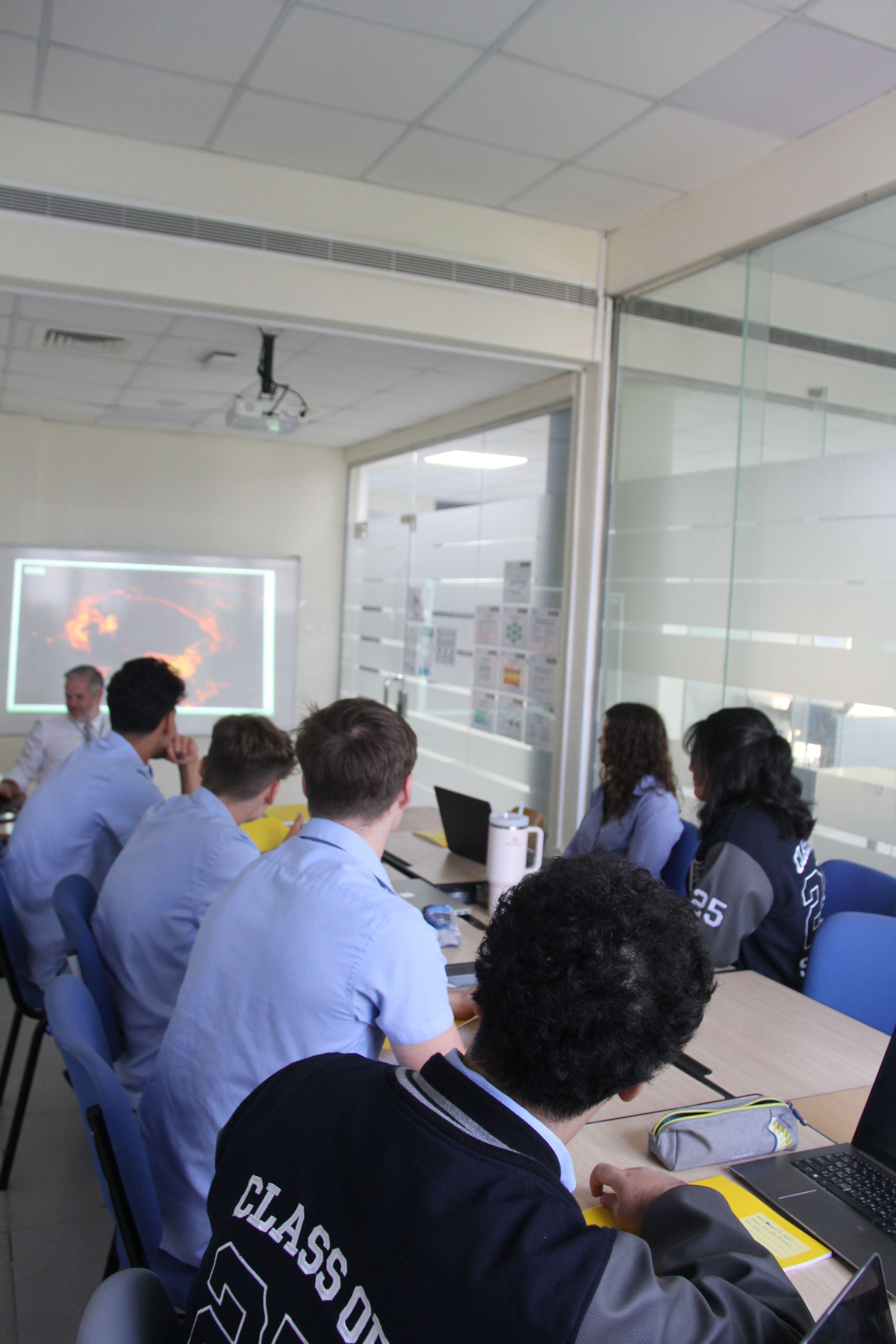
Desired grades 7 or above in geography
Click here to view the course syllabus
The course is modular with AS taken by all in year 12 with the option to continue in year 13 to A2. A C grade is required to move onto A2.
Jobs which involve people or the environment, for example engineering or medicine, would be highly benefitted by A Level Geography. Geography is a facilitating subject for entrance to universities because it is a cross curricula subject that keeps options open with it encompassing both the arts (writing skills/ report writing) and sciences/maths (data interpretation). As a traditional A level qualification it is highly regarded as an entry requirement for all university courses. Students of A Level Geography go on to study a wide variety of subjects at university and enter a wide variety of careers.
Students learn about the significance of the two preeminent communist states of the twentieth century, discovering the politics, economics and society of both Lenin’s USSR and Mao Zedong’s China. They also consider the ebb and flow of the British Empire from the loss of the Thirteen Colonies of America, to the global dominance of Imperial Britain and its role in Australia, Canada, India and Egypt. Finally, all students carry out an independent coursework assignment focused on the October Revolution of 1917.
A Level History students develop their essay writing skill to a university level. Our students learn how to build an argument considering a wide variety of factors which have influence over an event or period of time; identifying the most significant and analysing its effect are key historical skills. Students will use historical and modern sources to infer meaning by weighing up the effect of the nature, origin, and purpose of the source.
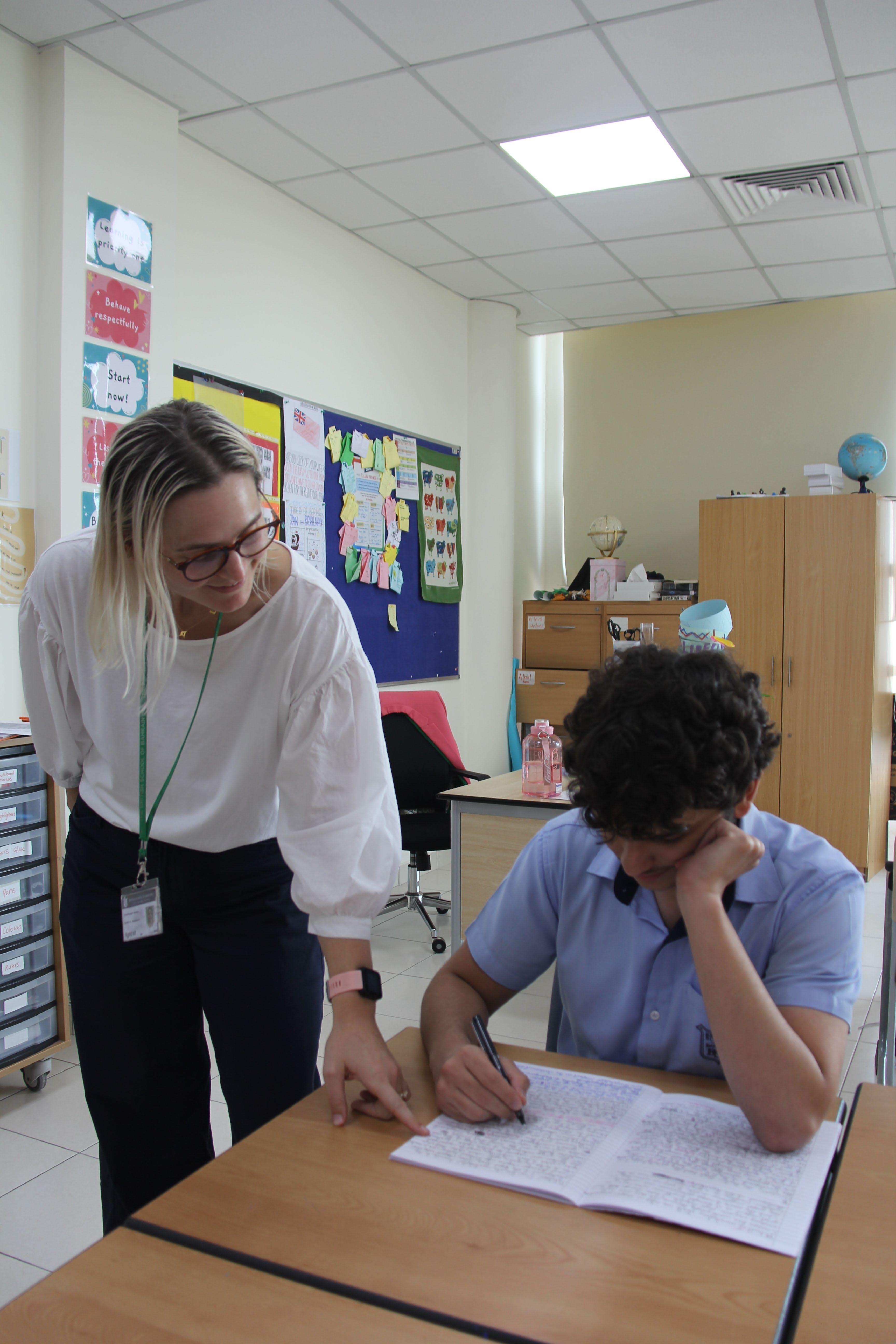
Desired grades 6 or above in history
Click here to view the course syllabus
The course is examined at the end of Y12 and the end of Y13. To carry on to Y13 students need to achieve a C from the AS exam in Y12. The Y13 exams determine the final grade for the course.
Students with A Level History are desired by top universities as it is not only a facilitating subject (one with transferable skills that will help higher level studies), but a demanding academic subject in its own right. Degree courses and careers in the areas of law, journalism, politics, education and business are common.
Component name
Assessment method
Weighting %
Duration of exam
Unit 1: Russia, 1917–91 from Lenin to Yeltsin
Unit 2: Option 2E.1 Mao’s China, 1949–76
Unit 3: Option 35.1: Britain Losing & Gaining an Empire, 1763 - 1914
Unit 4: Coursework: The Russian Revolution 1917
Lower 6th students will study two units for the Advanced Subsidiary (AS) qualification; unit one is social and cognitive psychology and unit two, biological psychology with learning and development.
Upper 6th students will study a further two units for the international A level qualification, unit 3 consists of Applications in Psychology and unit 4 clinical Psychology and Psychological problems.
Develop essential knowledge and understanding of different areas of the subject and how they relate to each other.
Develop and demonstrate a deep appreciation of the skills, knowledge and understanding of scientific methods; develop competence and confidence in a variety of practical, mathematical and problem-solving skills.
Develop their interest in and enthusiasm for the subject, including developing an interest in further study and careers associated with the subject; understand how society makes decisions about scientific issues and how the sciences contribute to the success of the economy and society. •

Desired grades
6 or above in mathematics and English. GCSE psychology is desirable Click here to view the course syllabus
A level psychology provides a suitable foundation for specialist study of Psychology at University, as well as other academic areas such as Biomedical sciences, counselling, and Business. The scientific aspects of the Psychology course, including the application of a reasoned approach, problem solving and manipulation of data, provide useful tools for careers in healthcare, law enforcement, finance, IT and research. The most popular career paths include Clinical Psychology, Psychiatry, and Further Education. Furthermore, the knowledge of human behavior and motivation, ability to critically analyze a problem, formulate a considered response, create an argument and generate new ideas lend themselves well to careers in the creative industries, the legal sector, government administration and education.
Component name
Assessment method
Weighting %
of exam
Social and Cognitive Psychology
Biological, learning and development Applications in Psychology
Clinical psychology and psychological skills
Students will study a variety of topics including: marketing, human resources, finance, production and the business environment.
•
Exam Board Cambridge
Syllabus code 9609
Possible university and career choices include management, marketing, HR, finance, accounting, banking, retailing, and government. In fact, Business is one of the most versatile subjects as the vast majority of graduates end up working in businesses.
•
•
•
Develop critical understanding of organisations, the markets they serve and the process of adding value.
Enhance a variety of skills including problem-solving, decisionmaking and communication.
Explore political, economic, social, technological, legal, environmental and ethical issues associated with business activity.
• Understand and appreciate the nature and scope of business and the role it plays in society
Evaluate business behaviour from the perspective of a range of stakeholders.
The course is modular. Students will sit two exams in Year 12 and two exams in Year 13.
Topics students will study are:
• Business Environment
• Human Resources
• Marketing
• Operations Management
• Finance and accounting
Students in year 13 will enhance their study in these topics by developing their knowledge through:
• Business strategy
• Human Resources strategies
• Marketing analysis strategies
• Operational strategies
• Financial strategies
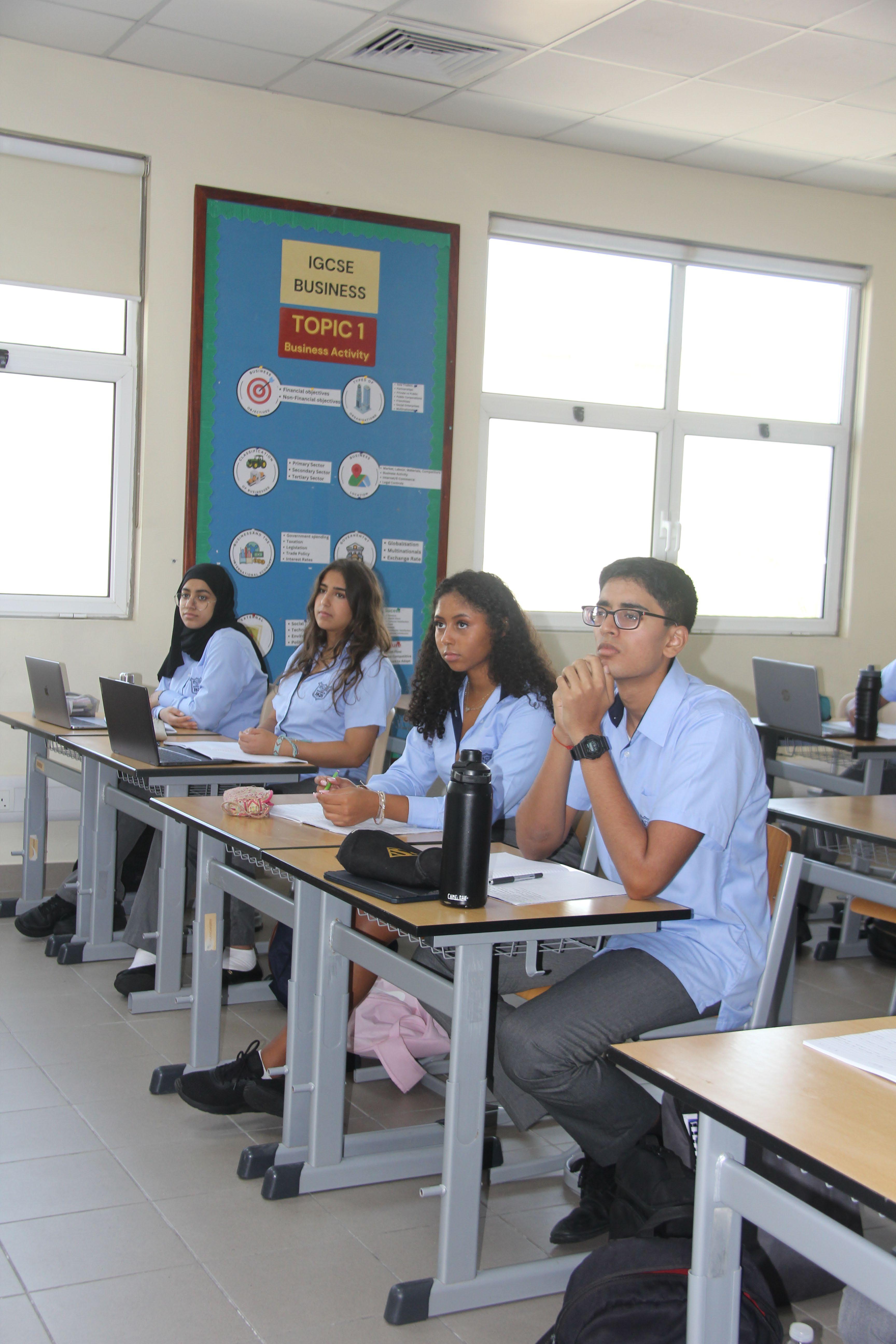
The diploma programme will consist of 9 units in total:
Exploring
Syllabus code BTEC Level 3 International
Diploma 500/6747/3 (1200 TQT)
Students are assessed using a variety of styles to help them develop a broad range of transferable skills; Students are given opportunities to:
Write up the findings of their own research
Use case studies to explore complex or unfamiliar situations
Carry out projects for which they have choice over the direction and outcomes
Demonstrate practical and technical skills using appropriate presentations and role plays.
All units are internally assessed and moderated by a UK external examiner. A summative unit grade can be awarded at pass, merit or distinction.
Students will develop key business skills in research, analysis and entrepreneurial management. The course will engage in scenarios based on real world assignments focused on the current business environment. To enhance their experience further, students will hold business events in the school community.
5 A*-C/9-4 (or equivalent) including English and mathematics. Grade 4 in business studies is desirable
Click here to view the course syllabus
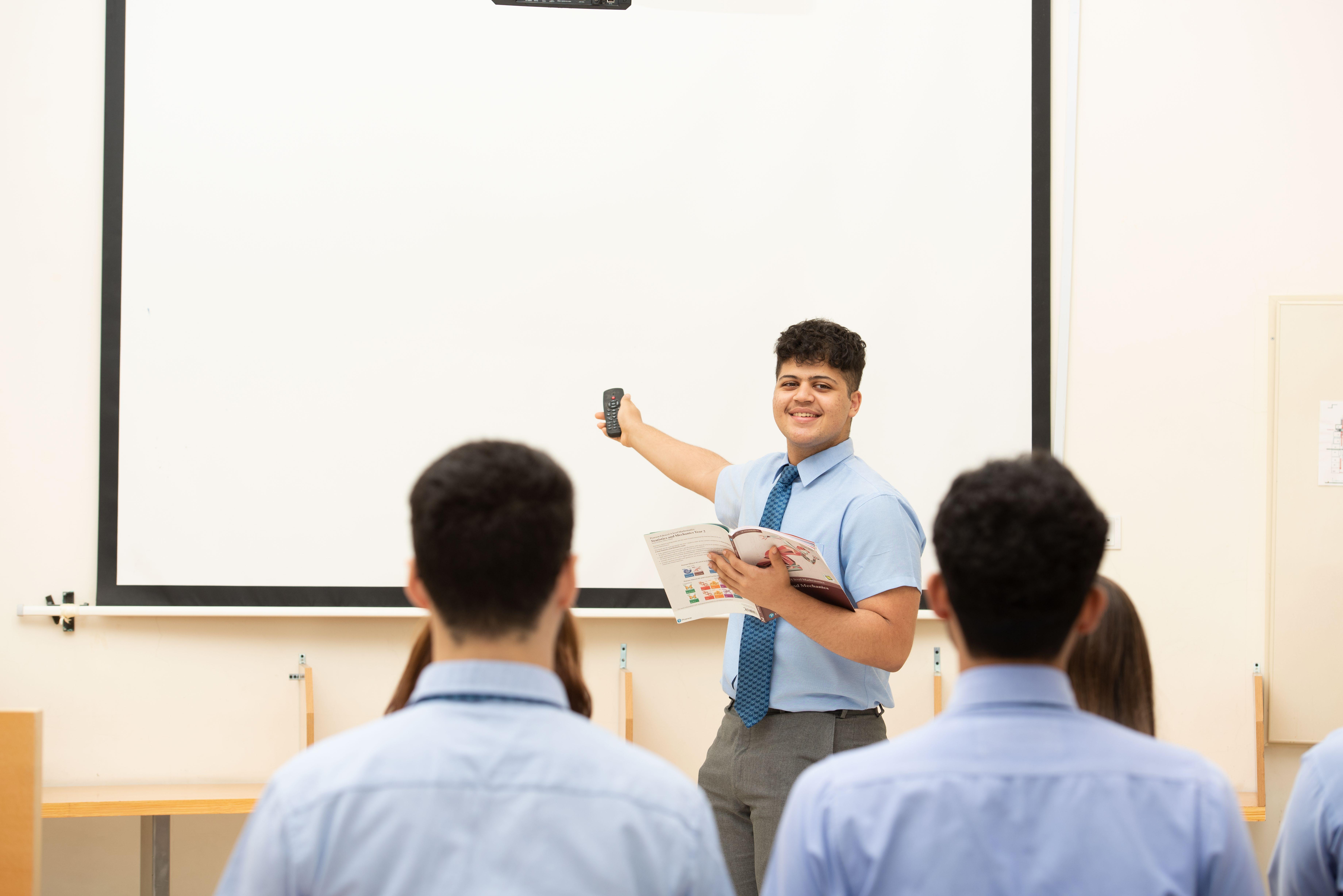
Students are introduced to Economics through building knowledge of core microeconomic and macroeconomic concepts, and by investigating economic theory through real-world businesses and the environments in which they operate; Breadth and depth of knowledge and understanding with applications to more complex concepts and models are developed in the second year of study. Students will need to apply their knowledge and understanding to both familiar and unfamiliar contexts in the assessment and demonstrate an awareness of current economic events and policies. Exam Board
Demonstrate knowledge of concepts and theories and their effects on economic agents.
Analysis of current economic and political events and their potential ramifications.
Use policy instruments to reach justified solutions to current economic issues.
Recommend methods of improving the success of firms in context.
Develop literacy skills to delivery university-level essays which effectively discuss economic issues.
Syllabus code 9EB0
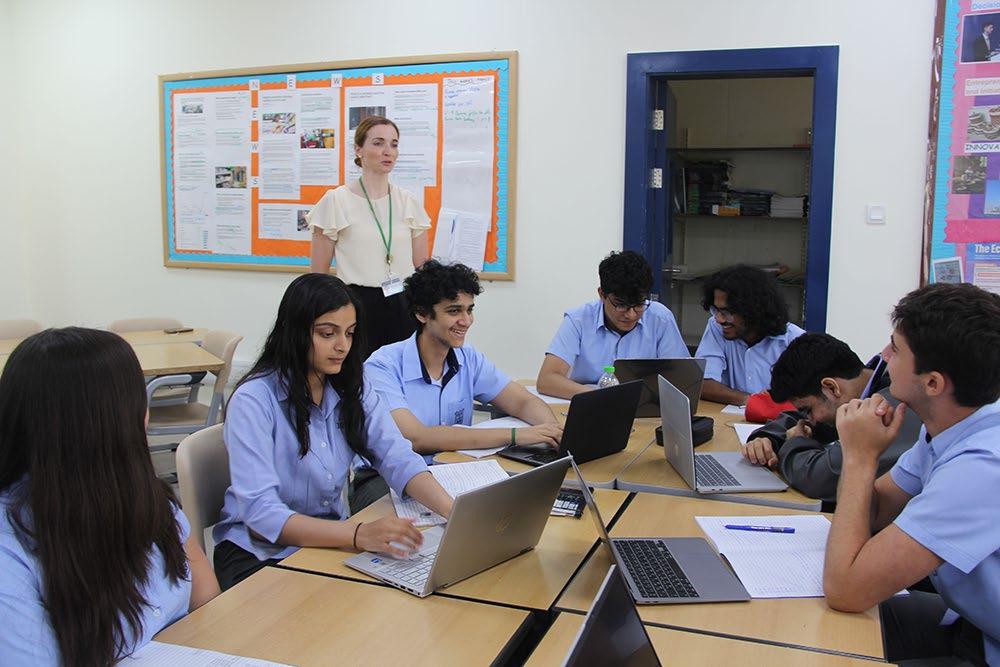
Desired grades 7 in economics. 7 in English and mathematics is desirable
Click here to view the course syllabus
This course lends itself well to further study in economics, business, politics, journalism and law. Additionally, the skills developed which focus on the understanding and analysis of both quantitative and qualitative data make economics an excellent choice regardless of career path.
Weighting
•
•
•
•
• •
• Develop computational thinking ideas and skills. Develop an understanding of the main principles of solving problems using computers.
Develop an understanding that every computer system is made up of subsystems, which in turn consist of further subsystems. Develop an understanding of the component parts of computer systems and how they interrelate, including software, data, hardware, communications and people. Acquire the skills necessary to apply this understanding to develop computer-based solutions to problems.
• Students will develop their problem solving skills and ability to break down complex tasks.
Students will become familiar with programming in particular with Python. Students will also build an understanding of computer architecture and boolean logic.
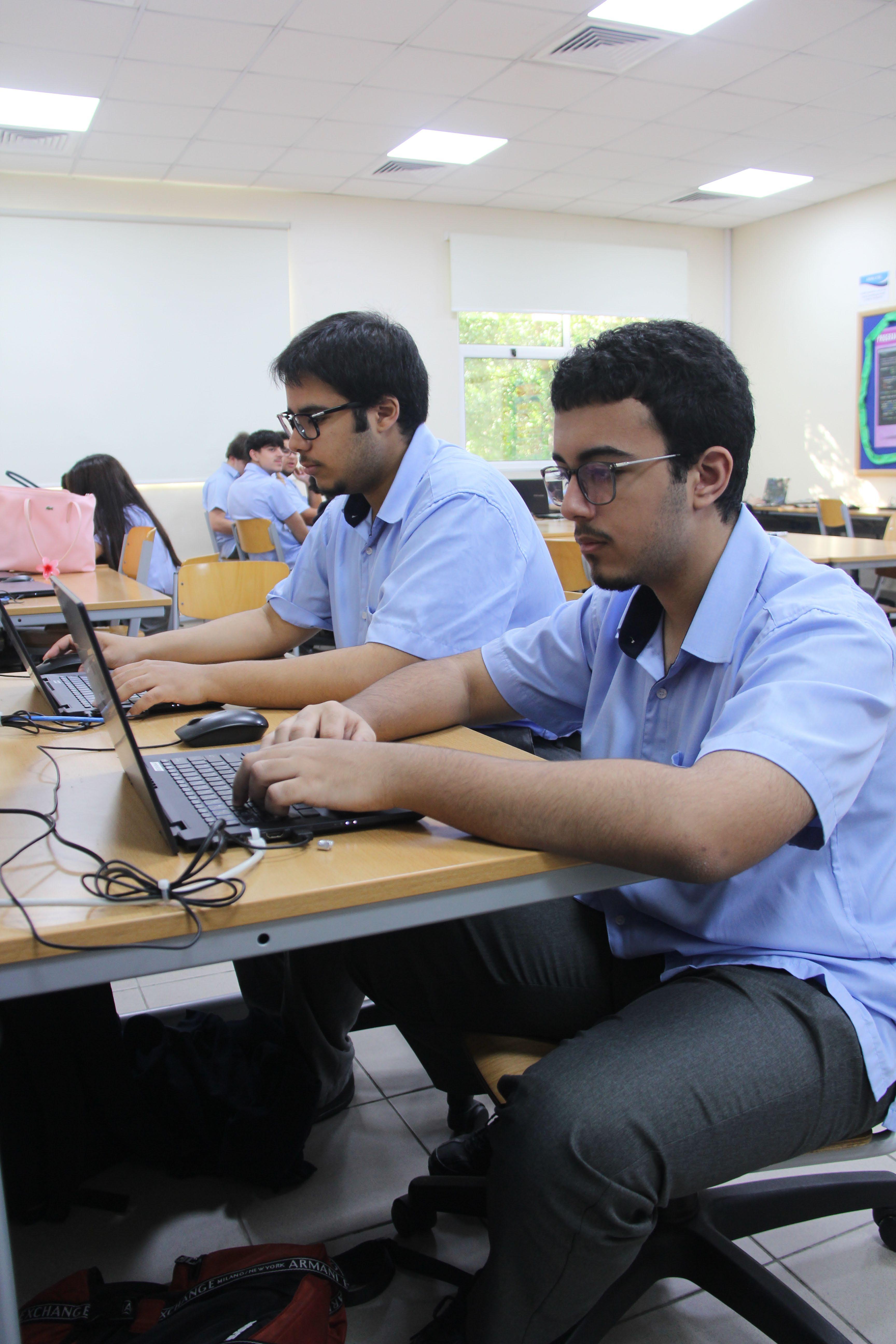
Desired grades 7 in computer science. 6 or above in mathematics and physics is desirable Click here to view the course syllabus
The course is modular. Students will sit two exams each in Years 12 and 13.
The analytical and problem solving skills developed through computer science make students highly employable both in and out of technology- related careers. Computer science may lead to a job such as a software engineer, computer engineer or information systems professional. A level computer science is acceptable as entry qualifications for the vast majority of college and university courses in just about any subject.
There are three options:
BTEC IT Subsidiary-Diploma, equivalent to 1 A Level, students taking the subsidiary route will complete 180 Guided Learning Hours (GLH) each year.
Diploma, equivalent to 2 A Levels, students will complete 360 GLH per year. Students will learn different skills and concepts in each unit outlined below.
Students are assessed using a variety of styles to help them develop a broad range of transferable skills; Students are given opportunities to:
Information Technology System - Developing communication skills using IT facilities.
Creating Systems to Manage Information - Understanding about handling and managing data using Access database.
Website Development - The principles behind how to design an effective website for a business need.
Exam Board Pearson
Syllabus code
Using Social Media in Business.
Mobile Apps Developments - Learn and develop skills in Mobile Apps application.
IT Project management - Understand about IT project lifecycle and management of IT project
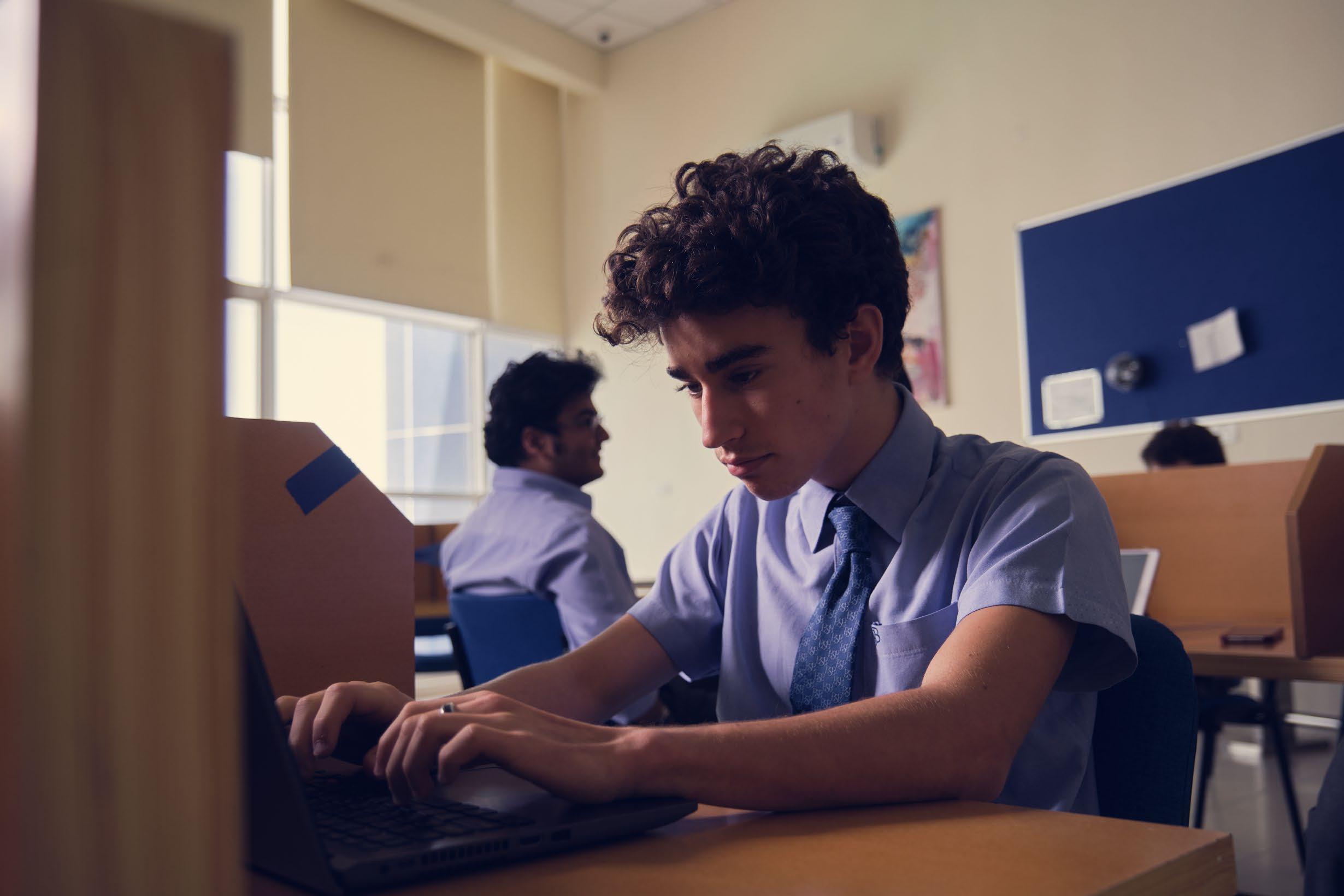
Desired grades
5 A*-C/9-4 (or equivalent) including English and mathematics. Grade 4 in physics is desirable Click here to view the course syllabus
You will learn a mixture of business, technical, interpersonal and project skills needed in modern IT and telecommunications roles; Students will develop various image editing software skills; Students will also learn about different topics such as what a computer system is, project planning and communication and employability skills for IT.
The course is assessed via 100% coursework and there are no external examinations. Coursework portfolios can be in the form of research projects, case studies, written reports or presentations.
Due to the advancements in technology, ICT is essential in many careerpathways. After completing the BTEC IT course, you will have earned a valuable qualification that can lead on to university courses based around IT or Computer Studies. Alternatively, you could move into employment within the IT industry.
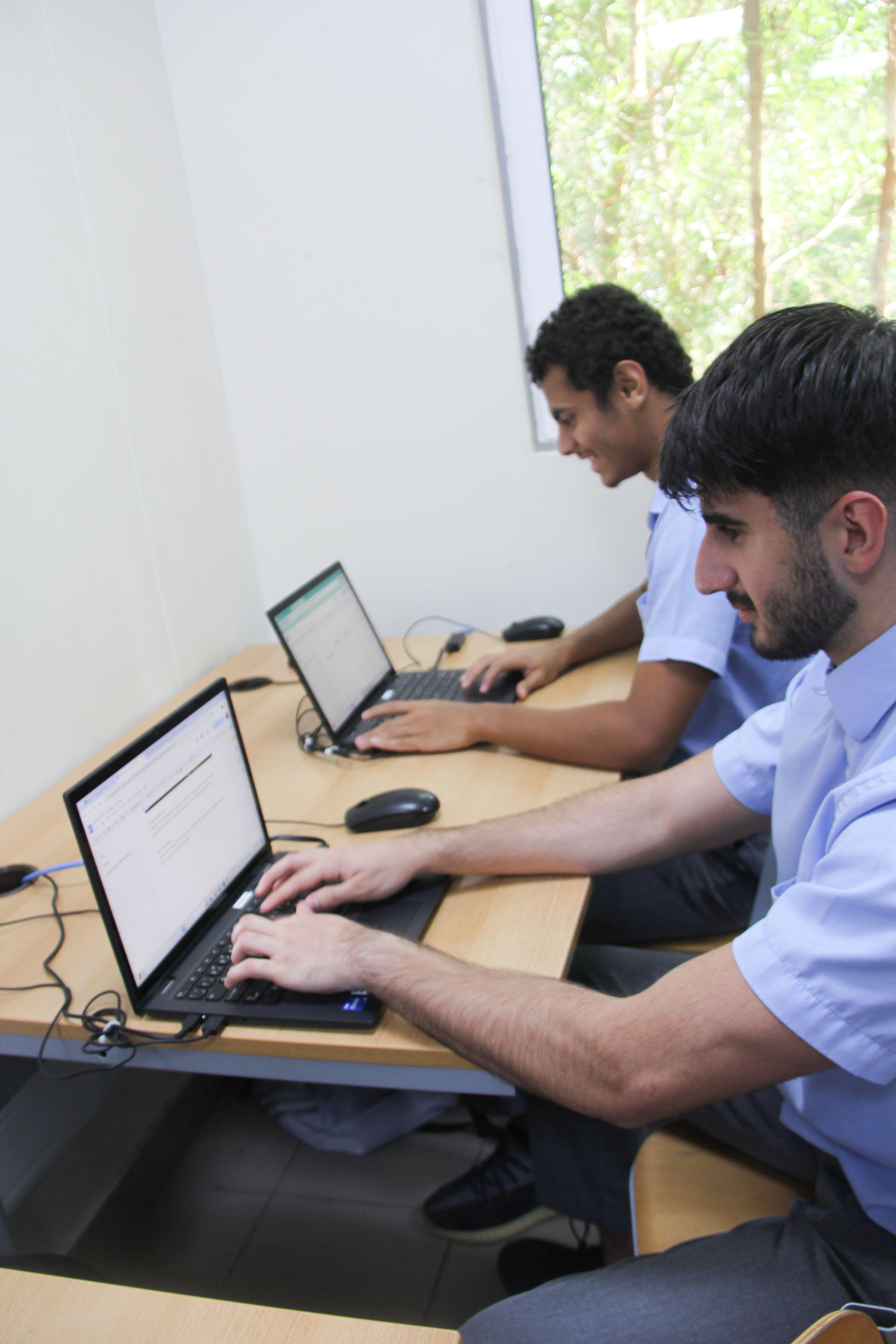

There are two options, BTEC Engineering Qulification (Two Years Programme Course):
Pearson BTEC International Level 3 Diploma in Engineering, 720 GLH Equivalent in size to two International (A) Levels. 720 GLH of units of which 360 GLH are mandatory (240 GLH are assessed through Pearson Set Assignments) and 360 GLH selected from the given optional unit lists. Mandatory content (42%).
Extended-Diploma, equivalent to 3 A Levels, students will complete 1080 GLH in two years. As in Diploma above but there will be extra units related to high technologies, gaming, robotics and computer network.
A two-year, full time course for learners to gain relevant skills and knowledge from studying a range of content focused on engineering disciplines, for example electrical machines or maintenance of mechanical systems. Designed to be the substantive part of a 16–19 study programme for learners who want a strong core of sector study and a focus on engineering.
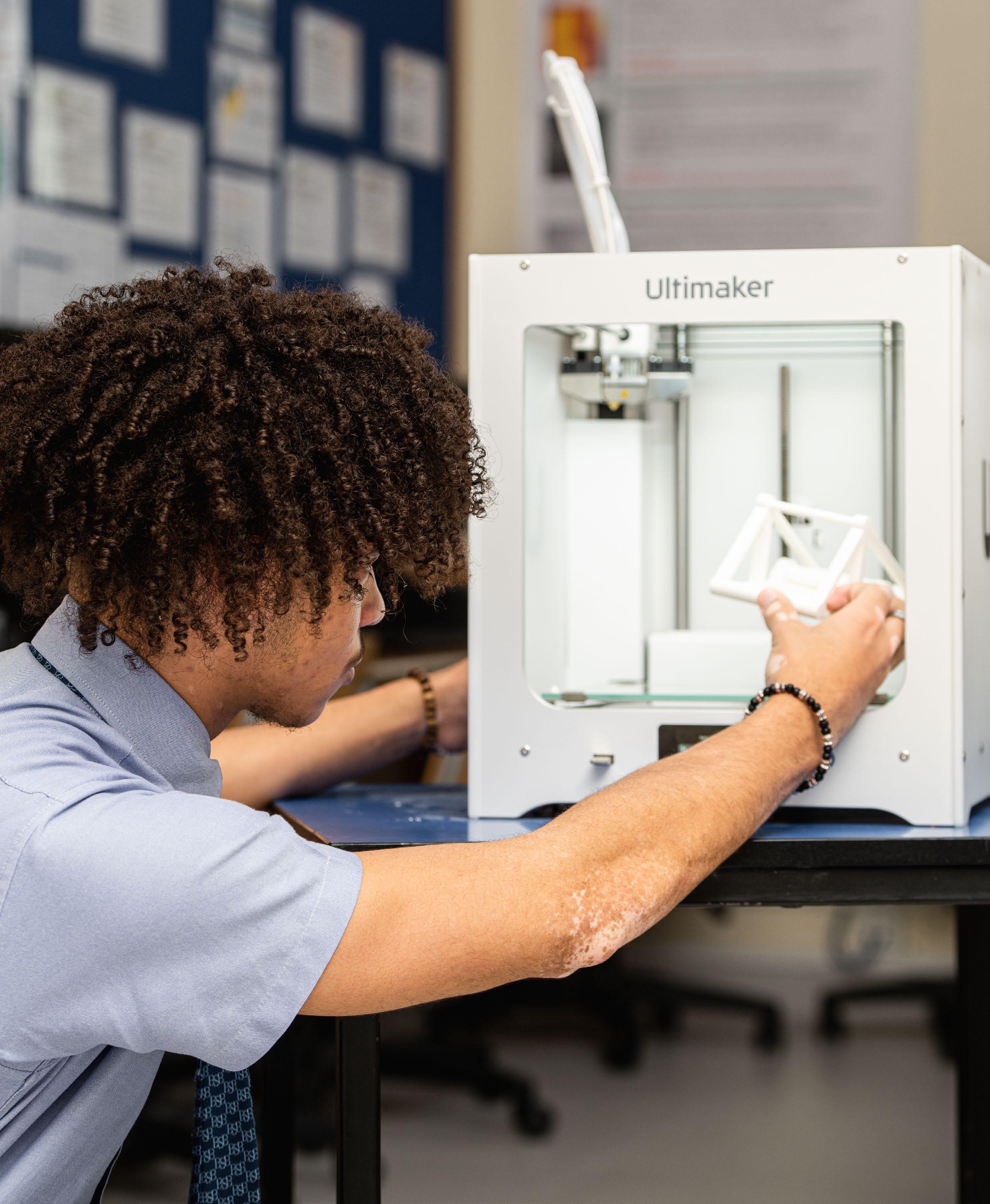
Mechanical Principles, Mandatory, Pearson Set Assignment.
Delivery of Engineering Processes Safely as a Team, Internal Assignments.
Product Design and Manufacture in Engineering, Mandatory, Pearson Set Assignment.
Computer Aided Design in Engineering, Internal Assignments.
Electrical and Electronic Principles, Mandatory, Pearson Set Assignment.
Applied Commercial and Quality Principles in Engineering, Internal Assignments.
Microcontroller Systems, Mandatory, Pearson Set Assignment.
Dynamic mechanical principles in practice.
Additive manufacturing process
In addition to four more optional units which will be selected by the course leader including work experience.
Cognitive and problem-solving skills – using critical thinking, approaching non-routine problems, applying expert and creative solutions, using systems and technology.
Interpersonal skills – communicating, working collaboratively, negotiating and influencing, self-presentation.
Intrapersonal skills – self-management, adaptability and resilience, self-monitoring and development.
The course is assessed via majority coursework with 3 controlled assessment and there are no external examinations. Coursework portfolios can be in the form of research projects, case studies, written reports or presentation.
Desired grades
5 A*-C/9-4 (or equivalent) including English and mathematics. Grade 4 in physics is desirable Click here to view the course syllabus
These qualifications also supp ort those following an apprenticeship in engineering who are looking to work and progress in the engineering sector as an engineering technician or as an engineering operative. After completing this qualification, learners can progress directly to technician roles, These qualifications are recognised by higher education providers as contributing to meeting admission requirements for many relevant courses in a variety of areas of the engineering sector, for example: BEng (Hons) in Engineering. Learners should always check the Desired grades for degree programmes with specific higher education providers.
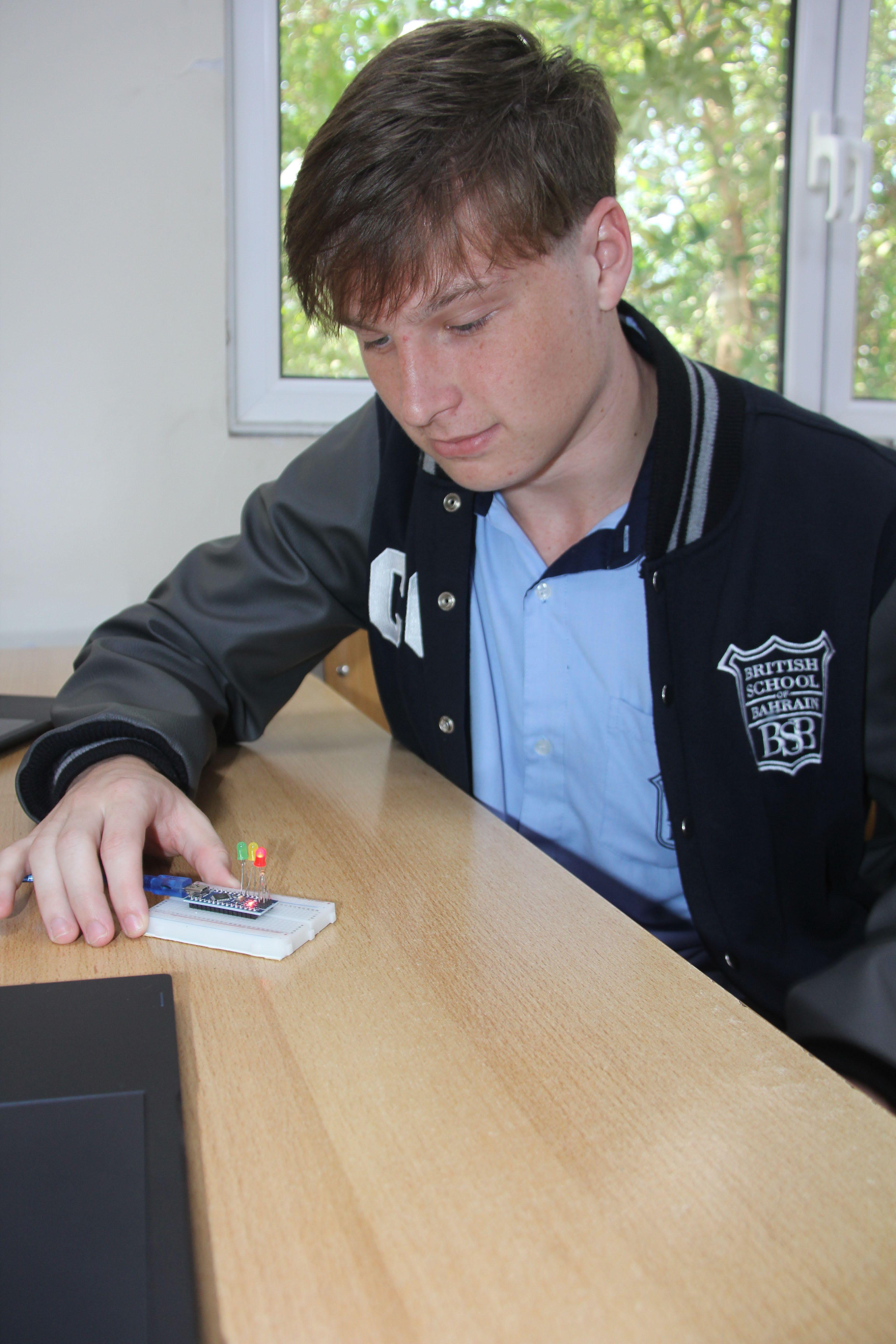
Students will learn how to create an individual portfolio of work influenced by the work of others. Students will base their work around the four main learning objectives, Contextual Studies, development and experimenting, recording observations and final outcomes. Students will be learning to review and refine work as it progresses in order to reach a personal and meaningful response that realises intentions and makes connections between visual elements.
Generate a range of ideas by researching primary and contextual sources, be able to record practical and written observations, develop ideas through reviewing and refining work, and develop experimental skills through appropriate selections of media and processes.
The course is an excellent foundation for the study of Art, Design or related courses at university. Opportunities for careers in Art and Design are not limited to Fine or Commercial artistry, but graphic design, illustration, animation,web design, and architecture.
The course is linear, meaning that all examinations will take place at the end of Year 13.

Desired grades
6 or above in art, or acceptance of a submitted portfolio of work to show interest and potential in art.
Click here to view the course syllabus
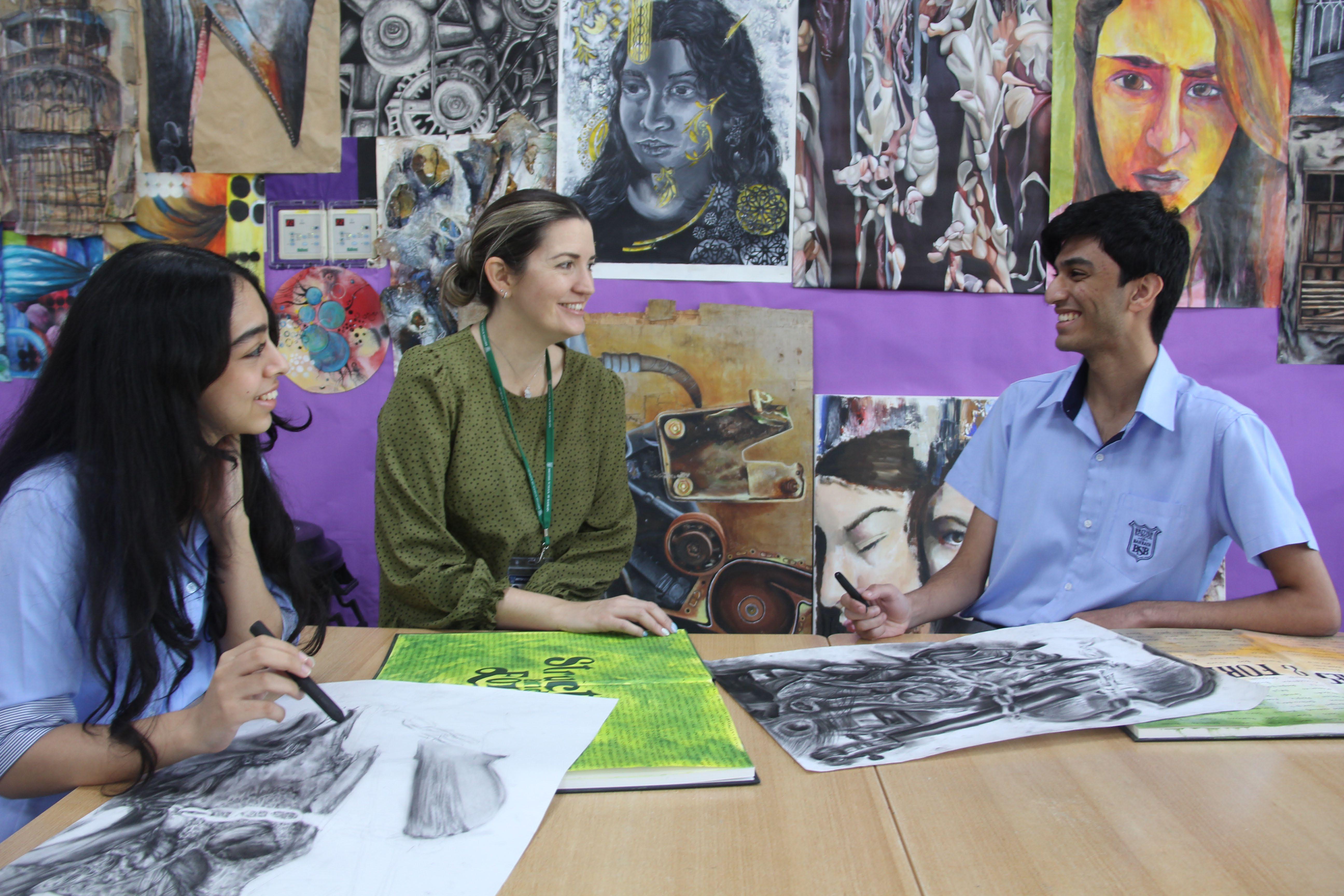
Assessment method
Weighting %
To recognise and understand the interrelationship between performer, designer and director.
The ability to understand how performance texts can be interpreted and performed. • •
Knowledge and understanding;Candidates demonstrate their context, and of theatre-making traditions and theatre practice;Devising of theatre for group performance;Performing;Candidates demonstrate acting skills in performing a range of text-based materials;Analysing and evaluating;Candidates demonstrate the ability to analyse and reflect on their own performance practiceand devising processes; candidates evaluate their own work and that of playwrights, performers or theatre-makers.
Linear end of year exam - coursework completed during the two years and portfolio submission.
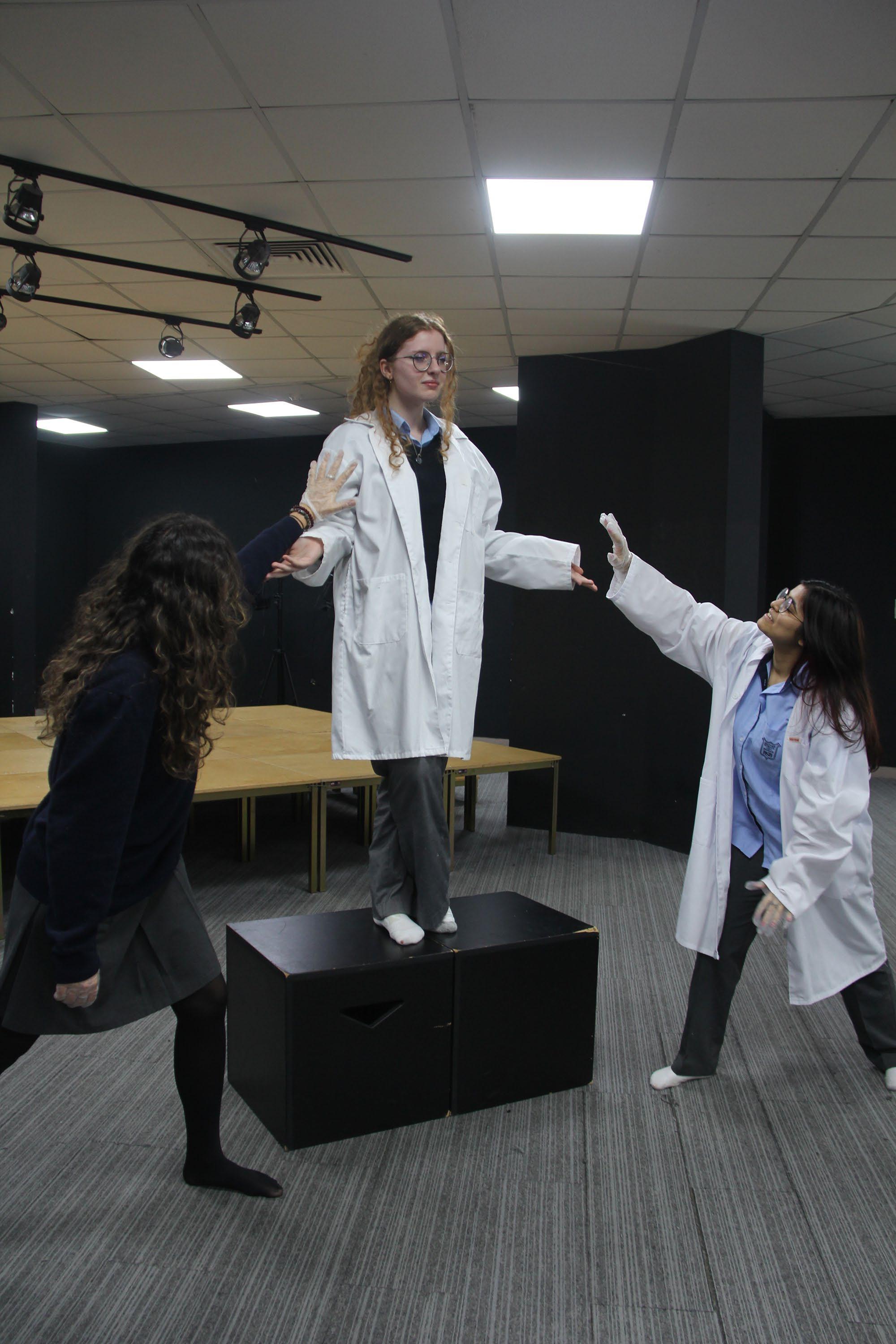
Desired grades
4 or above in English, plus an active interest in performing. GCSE drama is desirable
Click here to view the course syllabus
A Level qualification allows students to study further at College or University and follow career paths in the following careers; technician, lighting board operator, set designer, set construction, sound board operator, property master, front of house manager, marketing, directing, acting, choreography, acting and teaching.
Component name
Assessment method
Candidates answer two questions:
One question from Section A and one question from Section B.
Open-book exam Externally assessed.
Devisi ng
Candidates work in a group to prepare and perform an extract from a published play of their own choice.
Performing Internally assessed and externally moderated.
Devising
Candidates individually create a programme of thematically linked materials and perform it.
Performing Internally assessed & externally moderated.
Coursework:
Candidates explore performance texts, a theatre genre, a theatre practitioner’s work or a performance style. Externally assessed
Weighting %
Duration of exam
This qualification will support students in forming personal and meaningful relationships with music through the development of musical knowledge, understanding and skills, including performing, composing and appraising. Students will be encouraged to engage critically and creatively with a wide range of music and musical contexts, develop an understanding of the place of music in different cultures and contexts, and reflect on how music is used in the expression of personal and collective identities.
Evaluate and understand the different key elements used in music; develop knowledge and understanding of compositional techniques; develop performance and recital skills; gain an understanding of the different genres of music from different musical periods.
Externally Moderated Coursework: Live performance & composition portfolio. Written Examination: Listening Exam
Exam Board Cambridge
Syllabus code 9483
A Level Music is a highly regarded subject by universities globally. Used alongside with other creative subjects, but more often to demonstrate another side to a student in tandem with Maths, Sciences and other subjects of analysis. As faculties of further study often look to bolster their musical departments, and research often shows innate cognate ability in Musicians, Music has become a prized A Level when students apply for non-musical courses in higher study.
Additionally, Music is of course inherently useful for Arts and Media courses. Careers within the Arts of Music Production, Performing Artists, Events and Festival Management, Sound Engineering, Artist Representation, Touring Coordination, Video Production, and many other careers in the wider industry are all possible following this. As the industry grows within the region and around the world, this specialism and extended skillset is very much in demand, and regularly leads to fruitful long term success.
Desired grades
6 or above in music, plus performance standard of at least a Grade
Click here to view the course syllabus
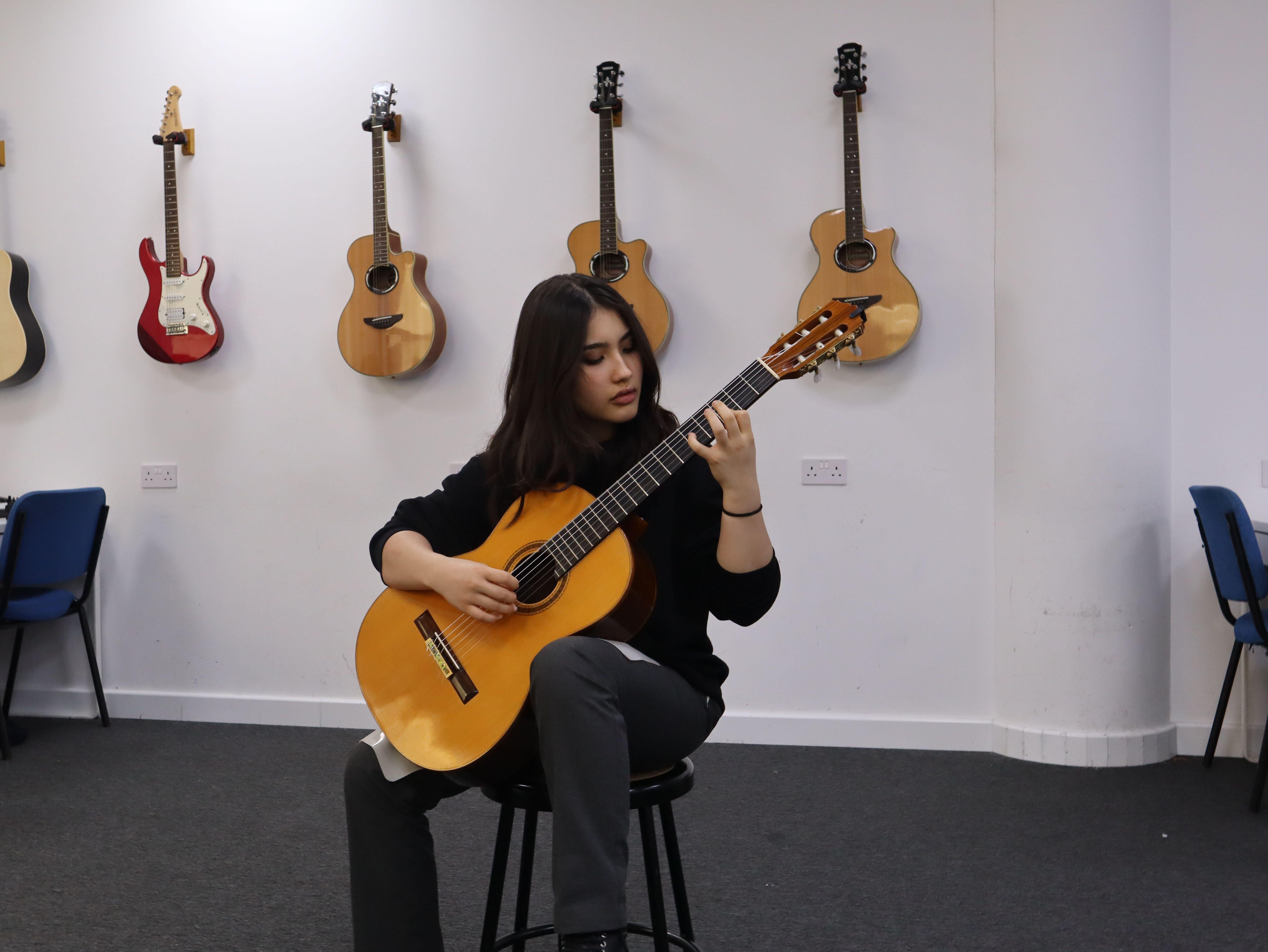
Students will look at sport from a range of perspectives, including scientific, psychological and social principles of physical education as well as practical performance. Performance can be assessed as either a player or coach. Students will also have the opportunity to undertake an in depth analysis of their own performance, from a physiological perspective and also a tactical or techincal perspective.
Develop theoretical knowledge of the factors that underpin physical activity and sport and use this knowledge to improve performance; understand how physiological and psychological states affect performance; understand the role of technology in physical activity and sport; develop their ability to analyse and evaluate to improve performance; refine their ability to perform effectively in physical activityand sport.
This is a two year, linear course, with examinations at the end of Upper 6th. There are two coursework units to be completed in Upper 6th; practical performance and performance analysis.
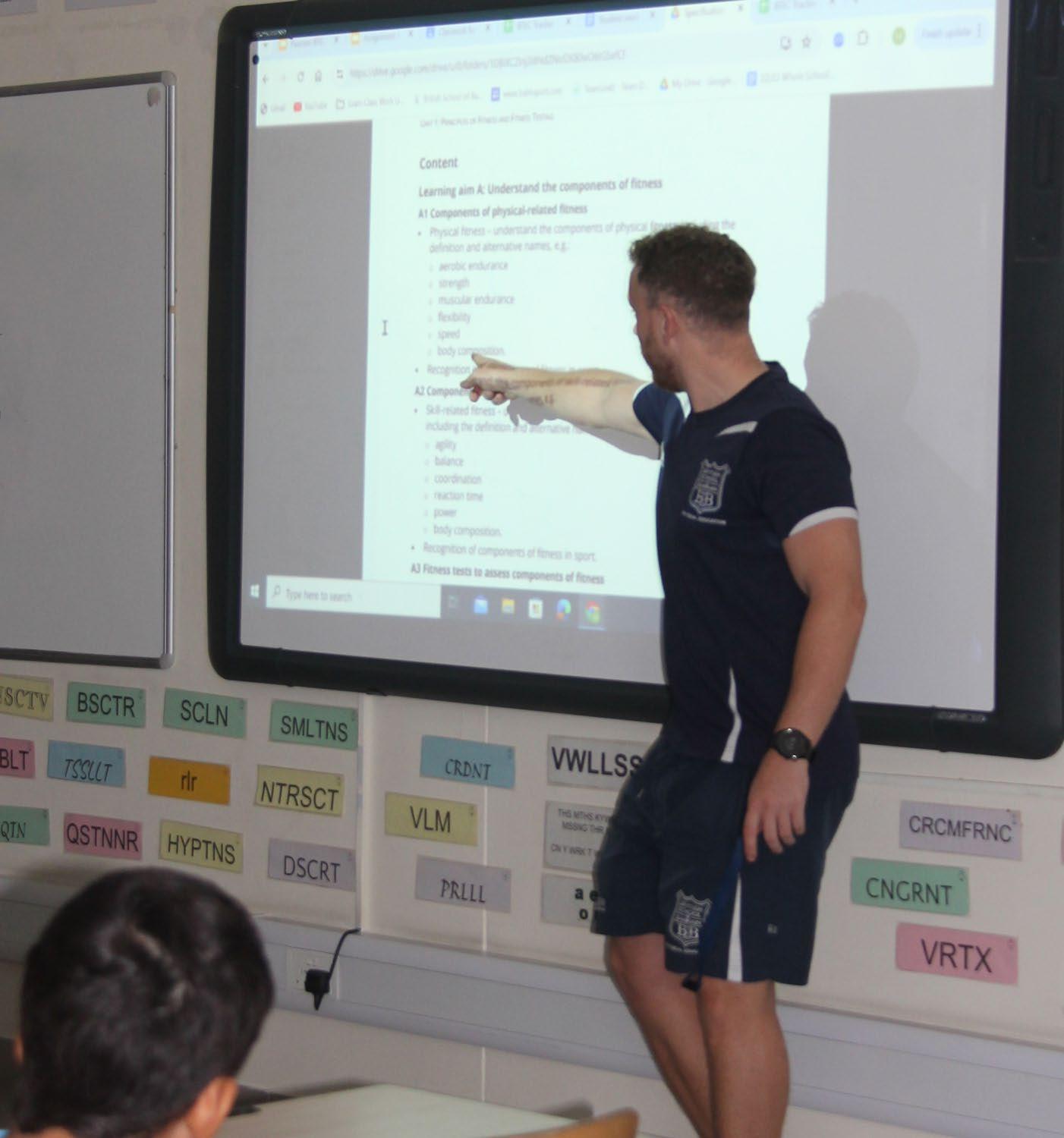
Desired grades 6 or above in science subjects, plus play one sport at a competitive level. GCSE physical education is desirable. Click here to see more course specifications.
University courses linked to sport, such as sports science, sports management or physiotherapy are very popular. Careers in sports technology, coaching, teaching, leisure and tourism, physiology, performance analysis are to name a few exciting opportunities in the world of sport.
Component name
Scientific Principles of Physical Education (9PE01)
Psychological & Sociological Principles in Physical Education (9PE02) Business Decision Making Business Strategy
Health, well-being and sport
Fitness Testing
Organising Events in Sport and Physical Activities
Sports Performance Analysis
Rules, Regulations and Officating in Sport
Practical Sports Performance
The Liverpool Coach – Employability Skills

persons and teams
Students are given opportunities to:
Write up the findings of their own research
Use case studies to explore complex or unfamiliar situations
Carry out projects for which they have choice over the direction and outcomes
Information processing: This course prepares you for a career either in professional sport or the general world of work where you will need to condense information into an understandable way for audience members.
Practical applicaton: You will use a variety of methods to investigate each area of study such as completing practical analysis, video analysis, presentations and scouting reports
Demonstrate practical and technical skills using appropriate presentations and role plays.
All units are internally assessed and moderated by a UK external examiner. A summative unit grade can be awarded at pass, merit or distinction.
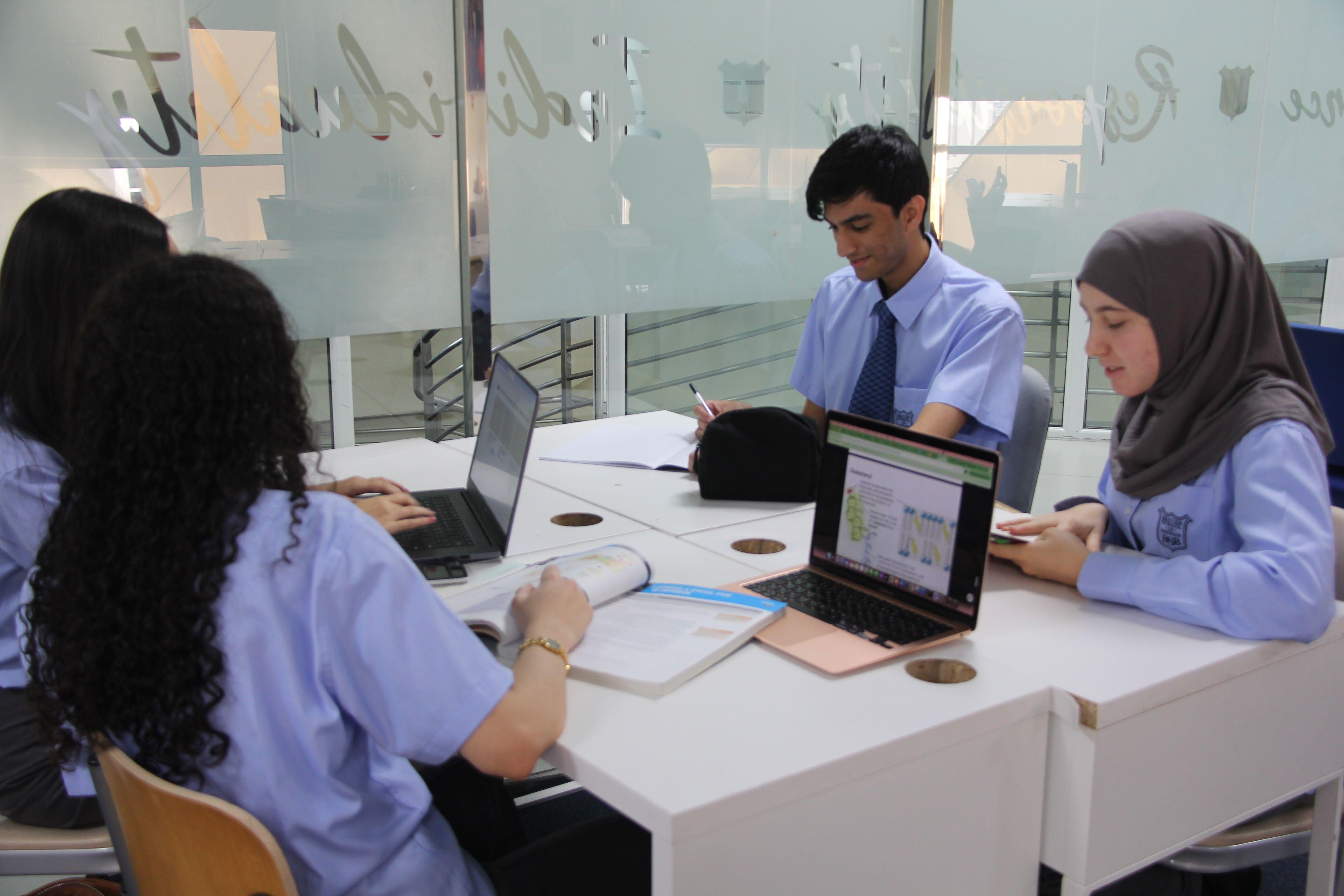
Desired grades
5 A*-C/9-4 (or equivalent) including English and mathematics, plus a keen interest in sport
Click here to view the course syllabus
Sports Science degree which can lead onto working in a professional sporting environment such as a performance analyst, coach or sports scientists. If students do use this course to study sport at University, they are able to apply their skills during work experience opportunities with professional sports teams. Universities can place students with professional teams such as Liverpool (football), Newcastle United(football), Everton (football) and London Wasps (rugby) etc.
Students do not always go on to have careers in professional sport, using the skills and techniques gained during the course to study and have careers in finance, marketing, business, construction and industry.
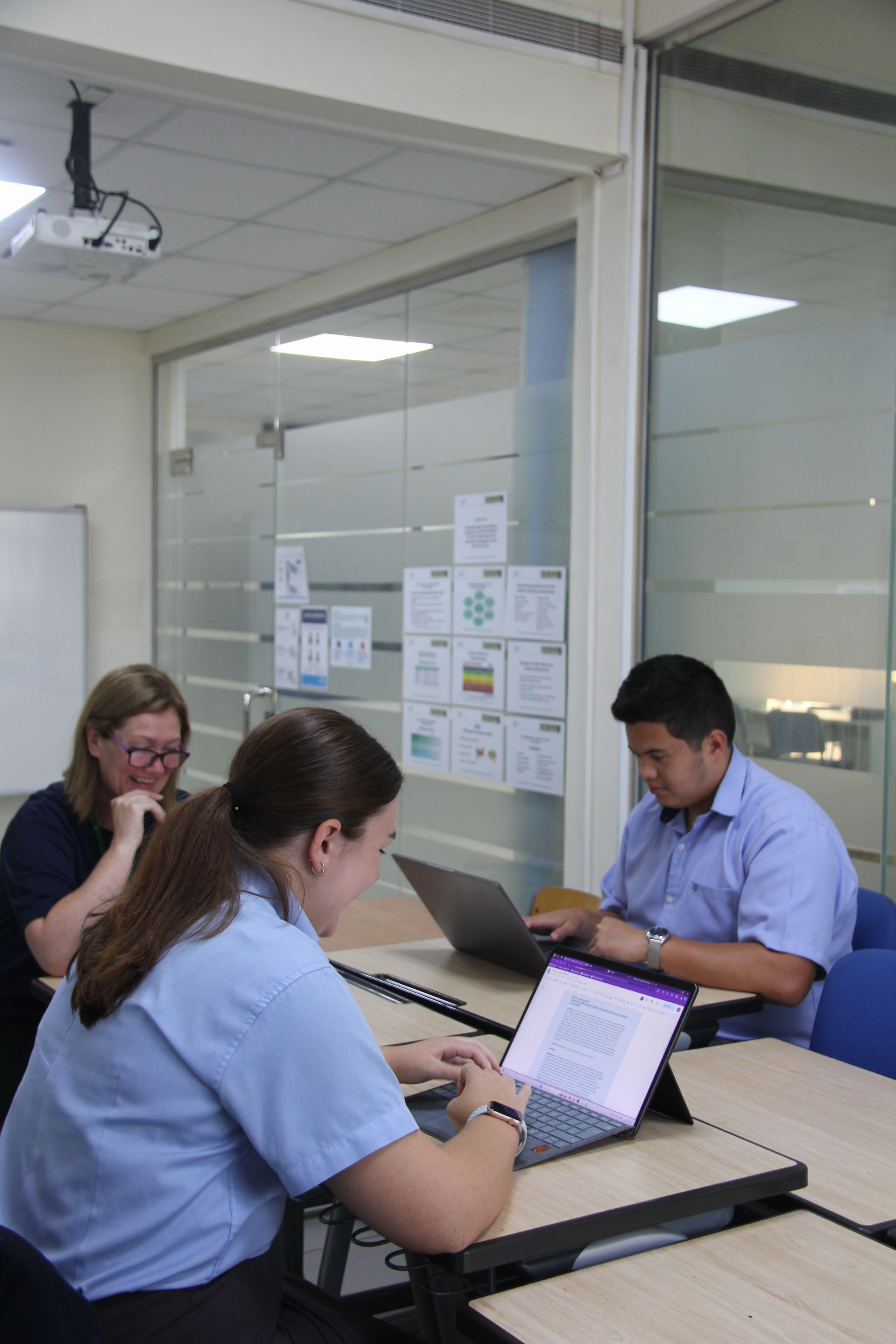

The Pearson Edexcel Level 3 Extended Project allows learners to study a topic area which extends their learning in their area of study, as a standalone qualification. Learners select one of the four units, which may be completed over one or two years. They should select a project topic which expands their learning in their field of study, in a related area, or that is relevant to their own personal interests. Learners will be assessed on their ability to plan, manage, complete and review their project and are assessed by a tutor-assessor from within the centre and externally moderated by Pearson.
•
•
Exam Board Edexcel Syllabus code P301
•
•
•
•
Develop and apply decision making and, where appropriate, problem solving skills .
Extend their planning, research, critical thinking, analysis, synthesis, evaluation and presentation skills.
• Develop and improve their own learning and performance as critical, reflective and independent learners
Where appropriate, develop as e-confident learners and apply relevant technologies in their studies
Develop and apply skills, creatively demonstrating initiative and enterprise.
Transfer skills developed as part of their project to other areas of study
• Where appropriate, develop as e-confident learners and apply relevant technologies in their studies
Use their learning experiences to support their personal aspirations for further education and/or career development.
In addition to the following careers which are grounded in the music industry, AS and A Level music should also be considered as an ‘added value’ subject to your university application. Music highlights your effective creativity, collaboration and communication - valuable skills which can augment your university application.
Identify, design, plan and carry out a project, applying a range of skills, strategies and methods to achieve objectives.
AO2
Research, critically select, organise and use information, and select and use a range of resources. Analyse data, apply relevantly and demonstrate understanding of any links, connections and complexities of the topic.
Select and use a range of skills, including, where appropriate, new technologies and problem solving, take decisions critically and achieve planned outcomes.
Evaluate all aspects of the extended project, including outcomes in relation to stated objectives and own learning in relation to performance. Select and use a range of communication skills and media to present evidenced outcomes and conclusions in appropriate format.
Total

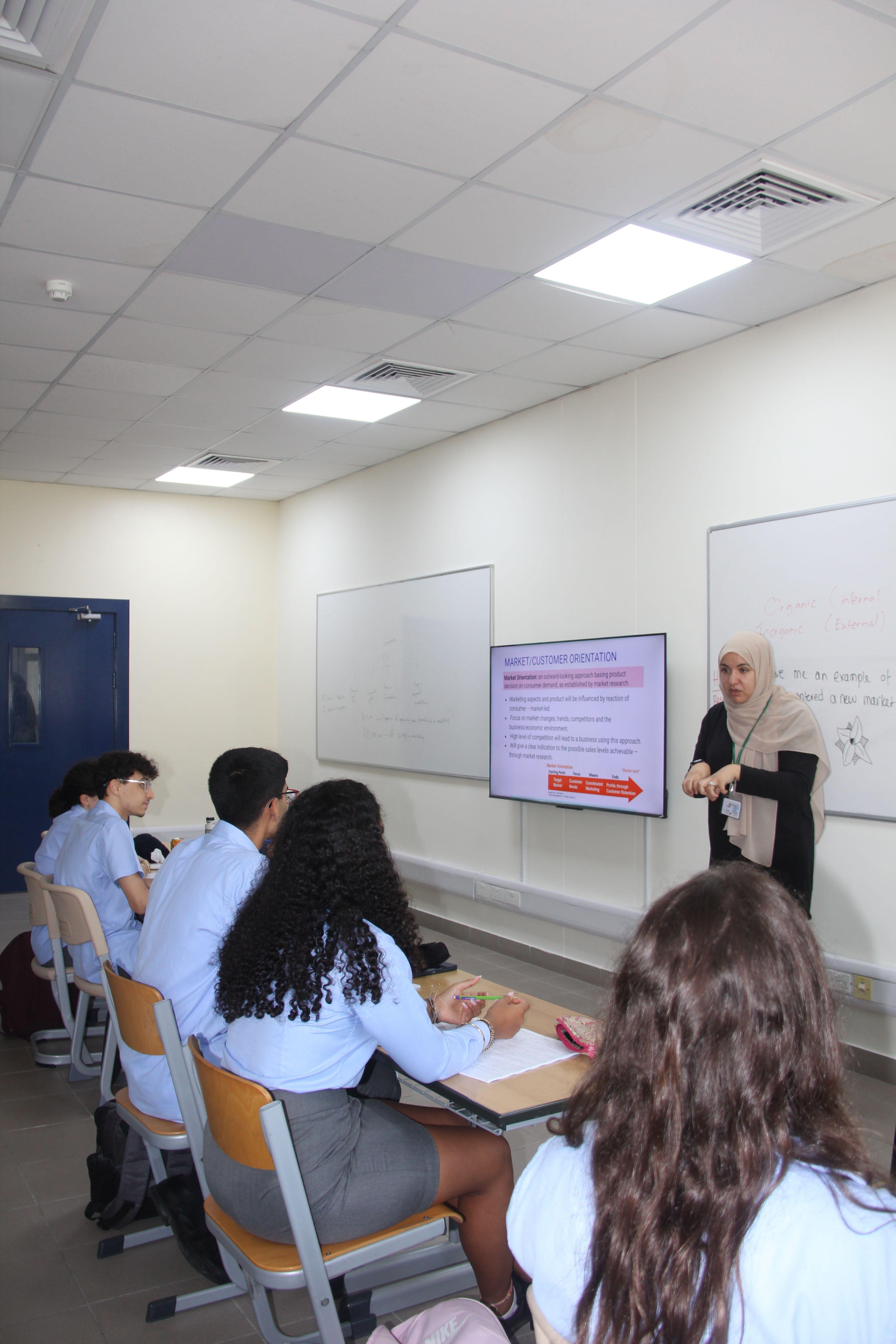


An innovative multi-faceted enrichment programme which aims to develop the skills and interests of all students throughout the Senior School, in order to ensure that they are successful when they enter their chosen university and careers.
A British School of Bahrain education is more than just the learning that occurs within its stimulating lessons. At the School’s heart is the development of a love of learning and the skills that make BSB students successful, not just at school, but when they graduate and begin their chosen career paths. Beyond BSB is part of this enriching provision and offers opportunities for every student to develop.
An essential part of the school’s ethos is embedding a passion for study and independent enquiry, which are vital to permit all students to develop beyond the confines of the curriculum. These principles have shaped the Beyond BSB programme.
The Inspired project begins in Key Stage 3 with all students encouraged to further develop their personal skills in researching, investigating and analysing the answers to questions that matter to them. Initially, students are encouraged to work in small groups to complete a mini-research project which can be presented through any medium including artefact, essay or even experimentation. Part of the project is for students to choose how to highlight their research investigation in a manner which they deem to be most appropriate. As students progress through the school, their Inspired projects grow in scope and magnitude, culminating in a significant piece of independent research and academic writing in Lower 6th.

Prepare all students with the skills required for university.
Create opportunities to celebrate academic excellence within BSB and reward our students for their academic achievements.
Allow in-depth study in a particular topic, or field, which will differentiate a candidate from their peers in their university application.
An enriching, regular university-level lecture programme, delivered live to an audience of students from Years 10 to Upper 6th. Students take part in a variety of academic talks about exciting and engaging topics. The diversity of these seminars reflects the talents of the BSB staff and the School’s partners from industry, with lectures such as astronomy, engineering, decision making, physiology and politics.
Further enhance BSB’s ethos of developing a love of learning in each child.
Ignite curiosity and interest in topics beyond the confines of the examination specifications.
Allow enthusiastic and passionate teachers to show their love of a subject.

BSB Connect is an advantageous opportunity for students in Years 10 to Upper 6th to build upon their personal skills and personal profile as a foundation for the future. Within this five module series, they will create a professional online profile, develop a personal curriculum vitae and understand the processes and methods for building their professional image for application to Universities, Graduate programmes, Summer schools, work experience and knowledge of how to continue to adapt and build this into the next stage of their education.
Ensure that BSB students graduate with a LinkedIn profile and polished curriculum vitae.
Raise awareness of social media activity and its impact on their future careers.
Develop students’ confidence and success in interview scenarios.
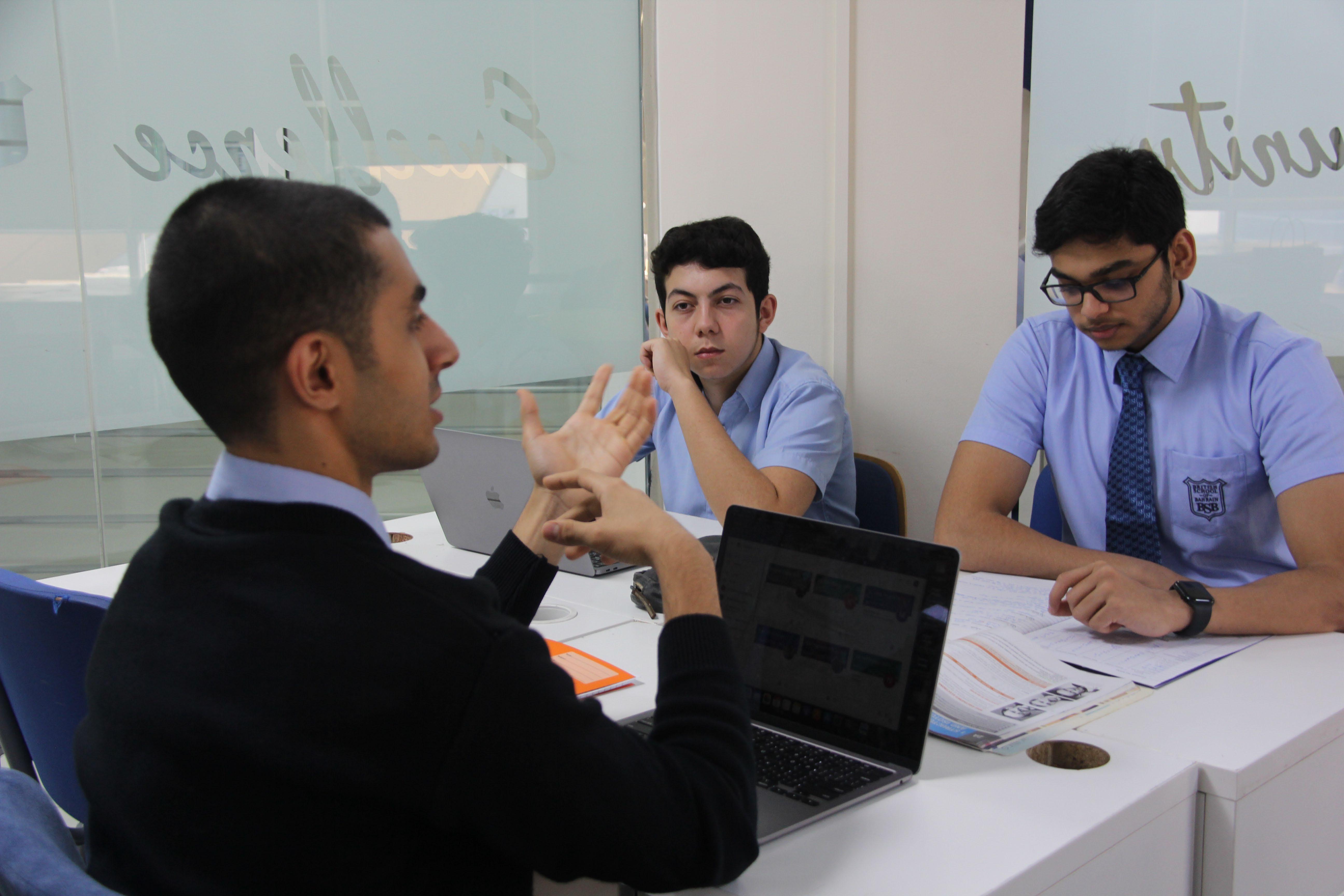
Ensure that BSB students graduate with a LinkedIn profile and polished curriculum vitae.
Raise awareness of social media activity and its impact on their future careers.
Develop students’ confidence and success in interview scenarios.
A guided enrichment programme designed for students who wish to pursue a University application to the world’s elite Universities, such as Oxbridge in the UK or Ivy League in the USA. Specific programmes take place in Years 10, 11 and Lower 6th, to gradually build students’ interest, knowledge and academic skills to produce a competitive application. This is an invitation only programme for BSB’s most outstanding academic performers.
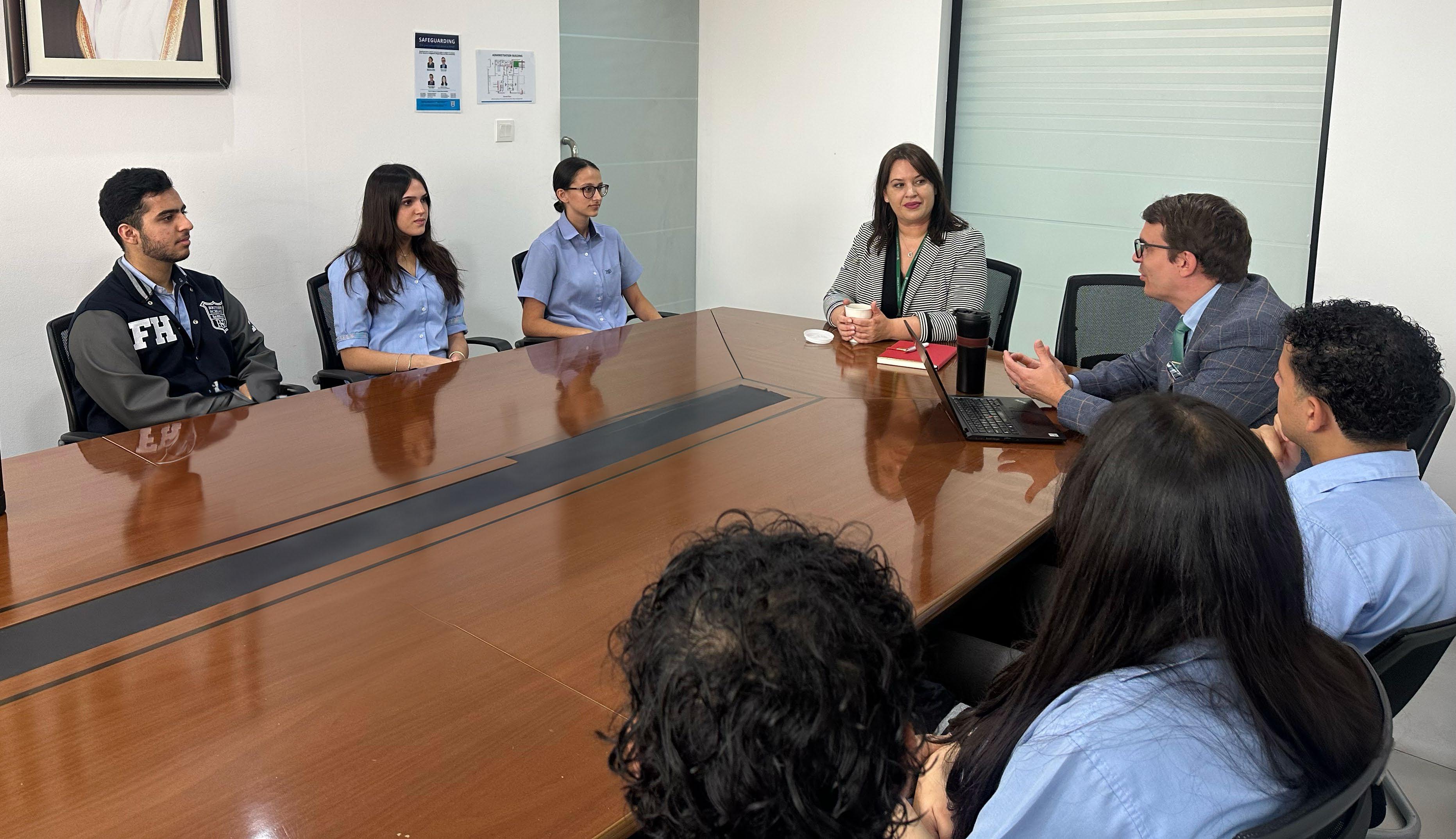
Students are provided with a variety of leadership opportunities throughout their time in the 6th form, in order to develop their confidence and skills as a future leader.
Student led extra curricular activities - to plan and deliver a passion to younger students.
Student led subject forums - to connect with like-minded students to discuss, debate and research a range of topics related to the subject of interest.
Student led committees - a range of groups to collate students’ opinions and wishes, to work with the school leadership team to enhance the overall student experience.
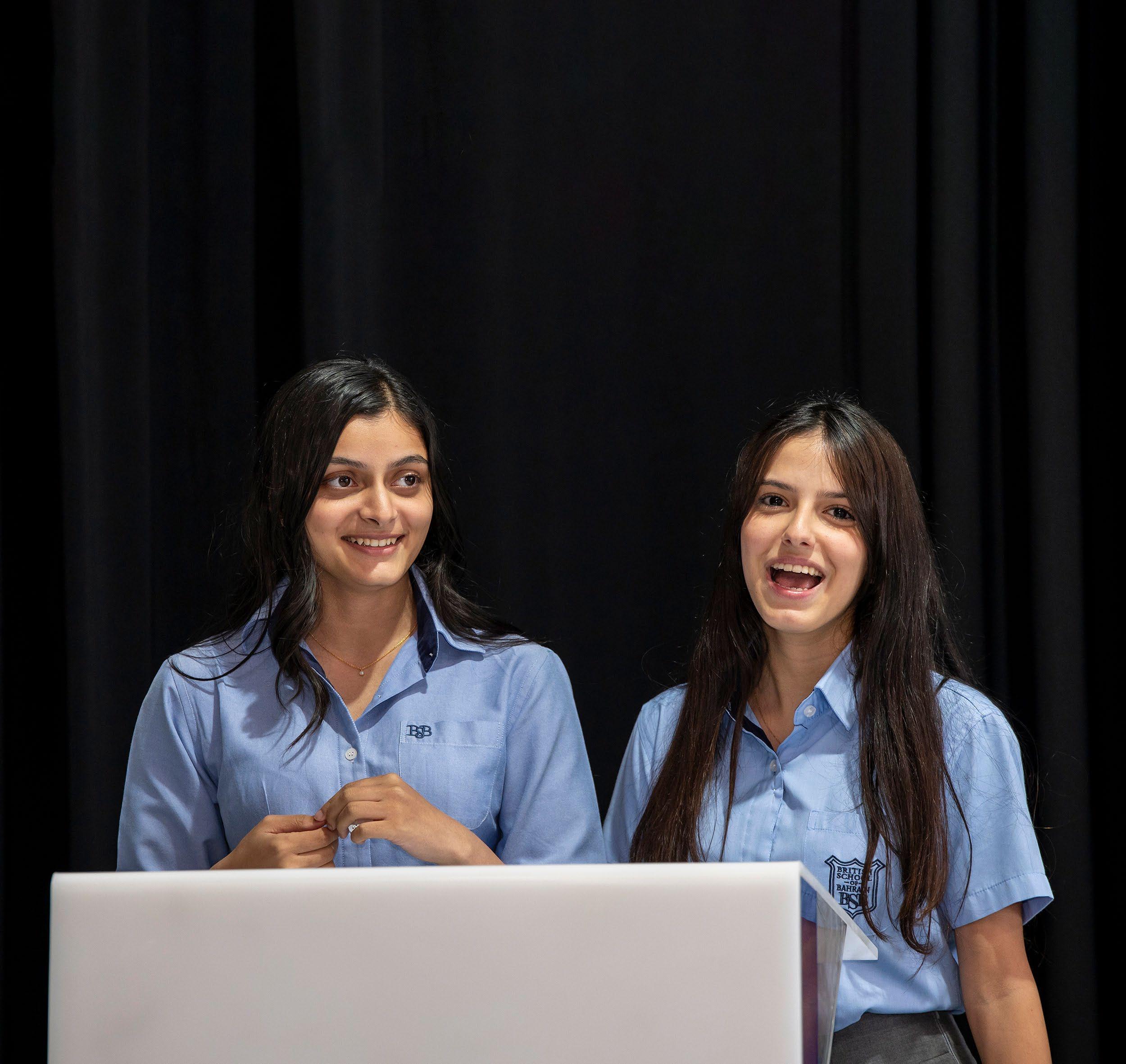
To develop critical leadership skills, such as collaboration, decision making and delegation.
To work in partnership with our local community.
To form early network connections which will enable their future career.

A series of standalone seminars, for Years 10 to Upper 6th, about the culture and etiquette of doing business in different countries around the world. In collaboration with various school partners and Embassies, Each short seminar is designed to provide a glimpse into how business is done in other countries, to give students an understanding of being globally connected.
Develop cultural awareness within students.
Nurture empathy and self awareness
Further enhance students’ understanding of cultural etiquette and sensitivity.

A fifteen-week voluntary course for passionate and committed Upper 6th students who aspire to a career in Business or Business Management. This course will comprise of mini modules, led by various experts from the school and industry, designed to develop a comprehensive set of business related skills in preparation for their career.
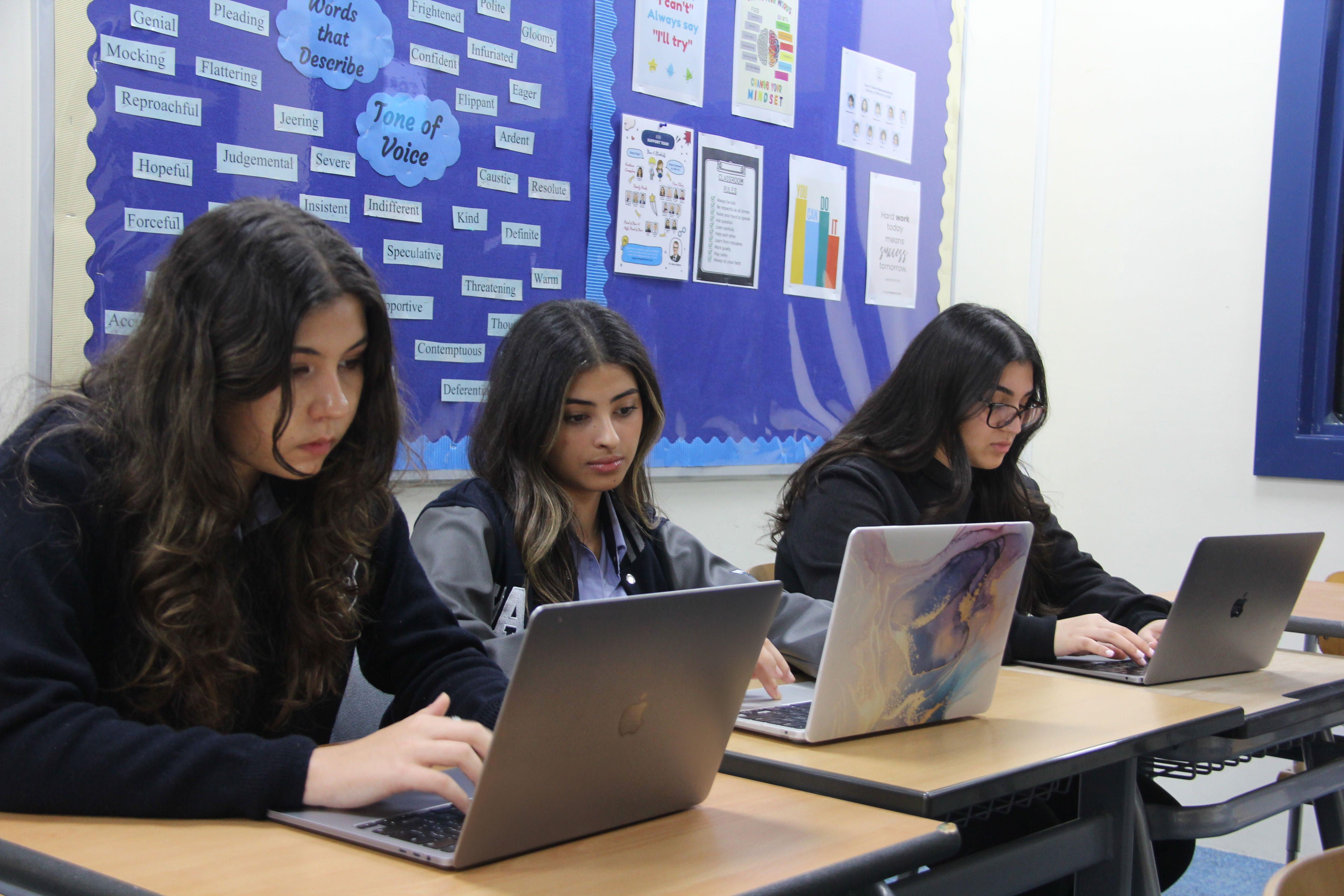
A series of subject specific support sessions designed to develop students' knowledge and understanding further, expanding beyond the curriculum and towards University study. Students will benefit from specific guidance to enhance their academic performance, as well as prepare for competitive applications to top universities around the world.
Enhance subject knowledge and understanding.
Develop critical thinking and application of knowledge.
Prepare students for various Desired grades of Universities, such as entrance examinations.
University College of Dublin
Lancaster University
University of Aberdeen
Heriot-Watt University
Nort humbria University, Newcastle
Newcastle University
Durham University
University of York
University of Salford
University of Manchester
Loughborough University
University of Warw ick
Aston University
University of Bristol
Swansea University
University of Exeter
University of Bath
University of Winchester
University of Southampton
University of Leeds
University of Nottingham
University of East Anglia UEA
Loughborough University
University of Westminster, London
University of the Ar ts London
UCL (University College London)
Queen Ma ry University of London
Mi ddlesex University
City, University of London
University of Kent
University of Sussex
University of Reading
University of Por tsmouth
British University of Bahrain
RCSI Bahrain
University of Bahrain
Pi lot S chool, Egypt
Bahrain Polytechnic
Stenden, Qatar
Royal University for Women
American University of Bahrain
American University of Sharjah, UAE
University of British Columbia
UC Davis, California
UC Berk ley, California
University of Warloo
University of Toronto
Ryerson University
University of Binghampton
University of Indiana
University of Southern California
Cornell University
Purdue University
University of Arizona
Ot tawa University
Concordia University
Bishop’s University
McGill University
New York University
Pennsylvania State University
Embry Riddle
Aeronautics University
University of Florida
University
College Dublin
Royal College of Surgeons in Ireland
Erasmus University
Rotterdam University
University of Amsterdam
Technical University of Munich
University of Paris
Loyola Mary mount University
Humanitas University
University College Utrecht
Rome University of Fine Ar ts
Catholic University of the Sacred Heart
Queen Mar y University
admissions@thebsbh.com
www.britishschoolbahrain.com